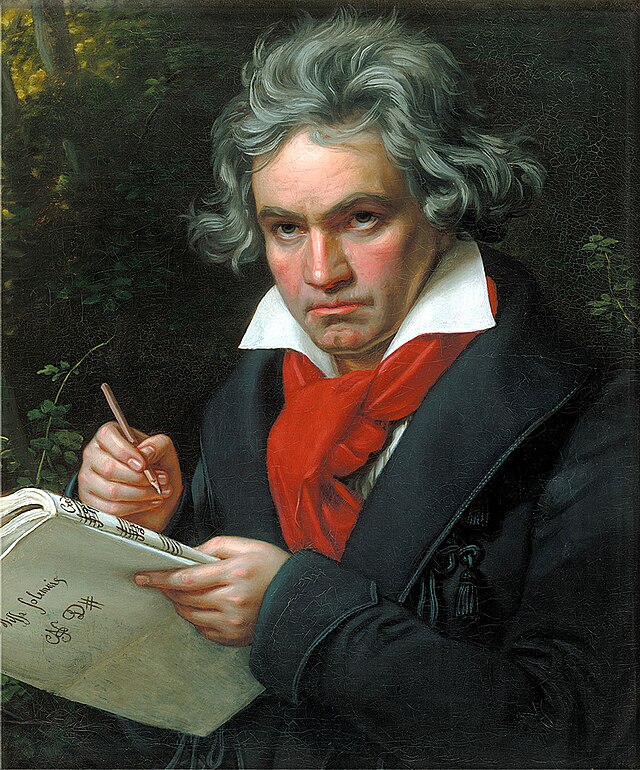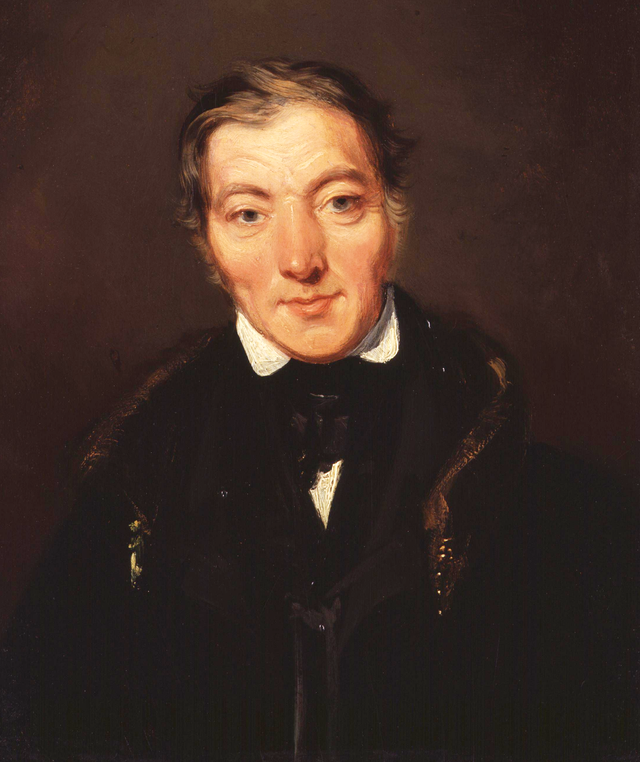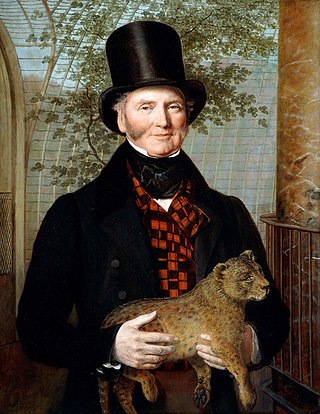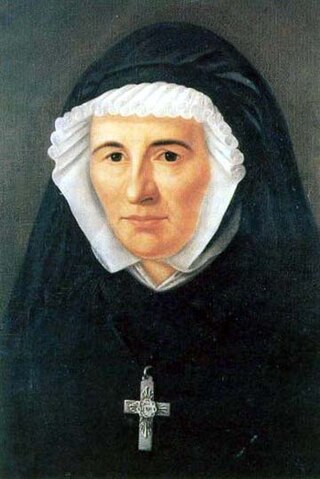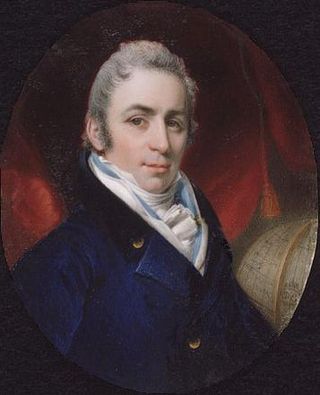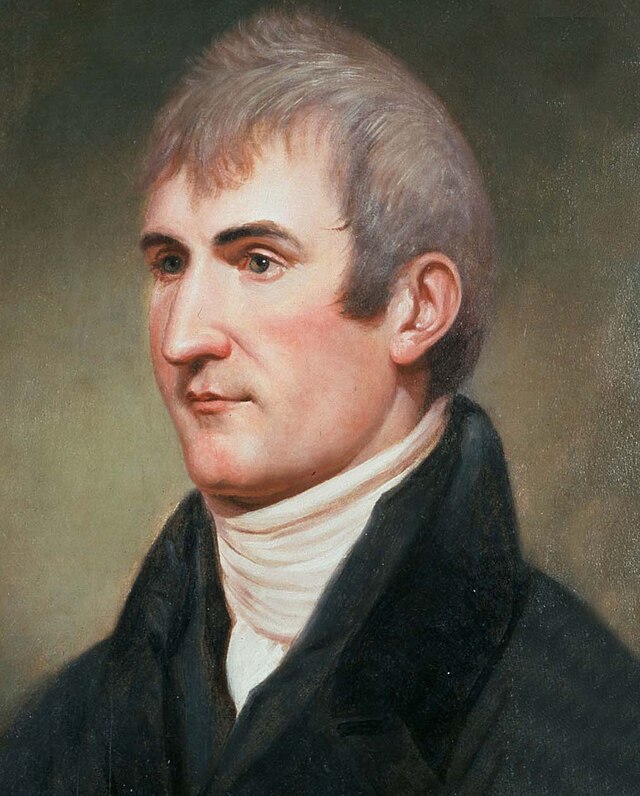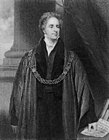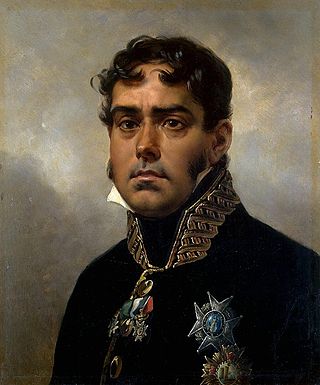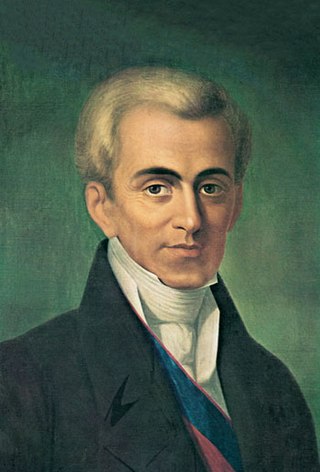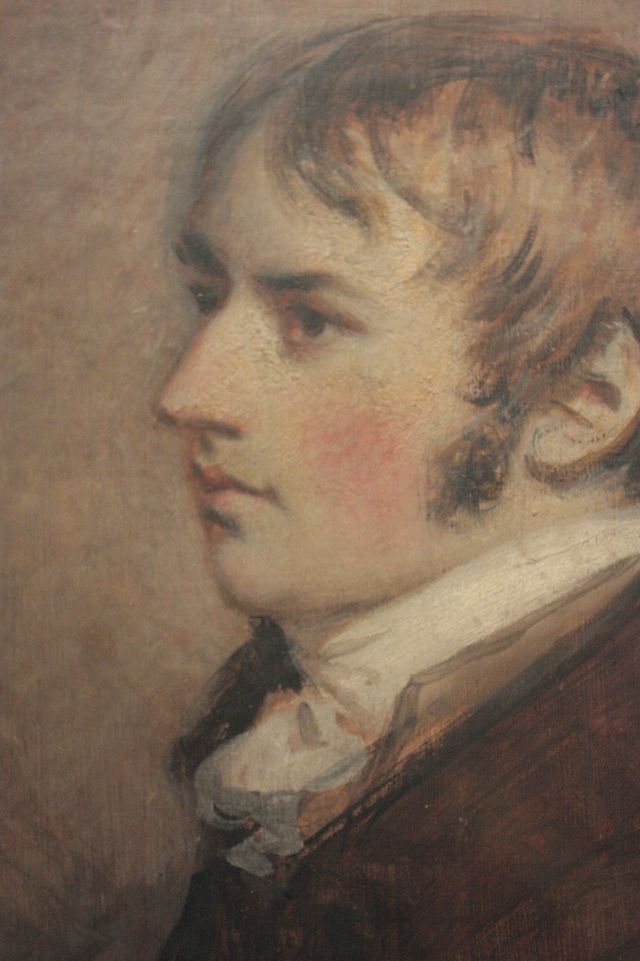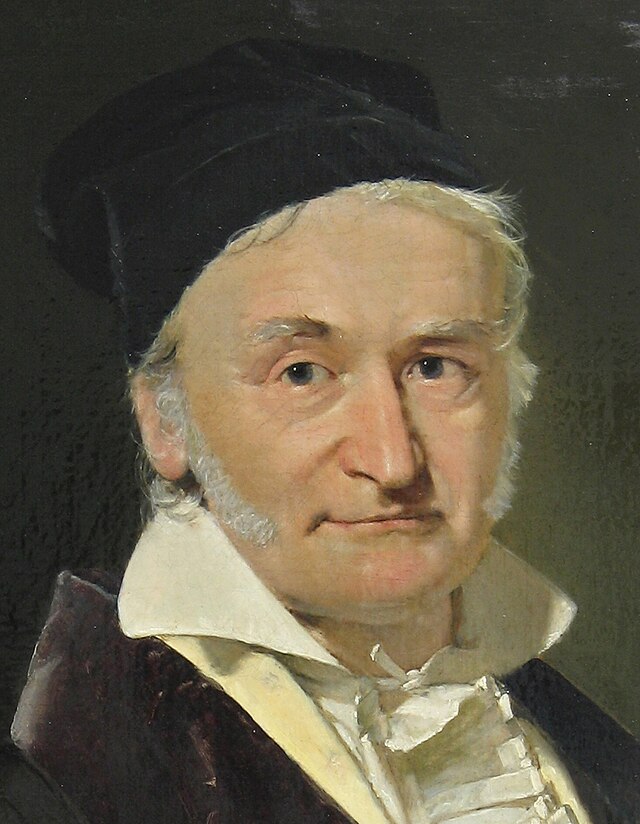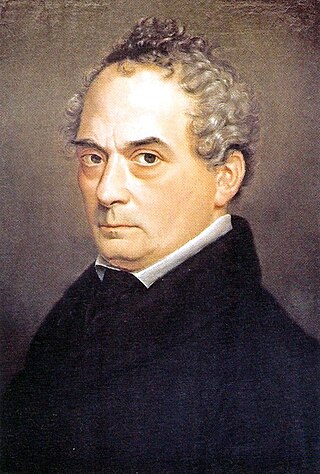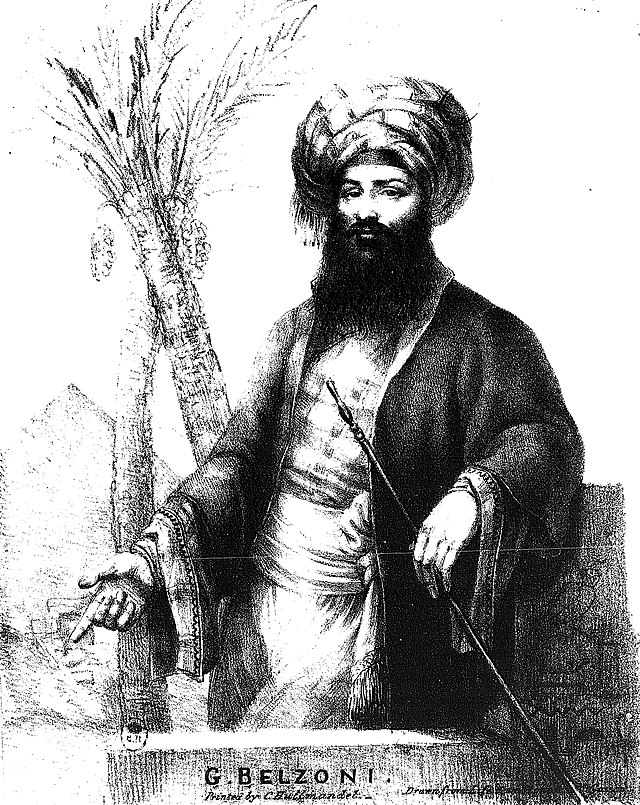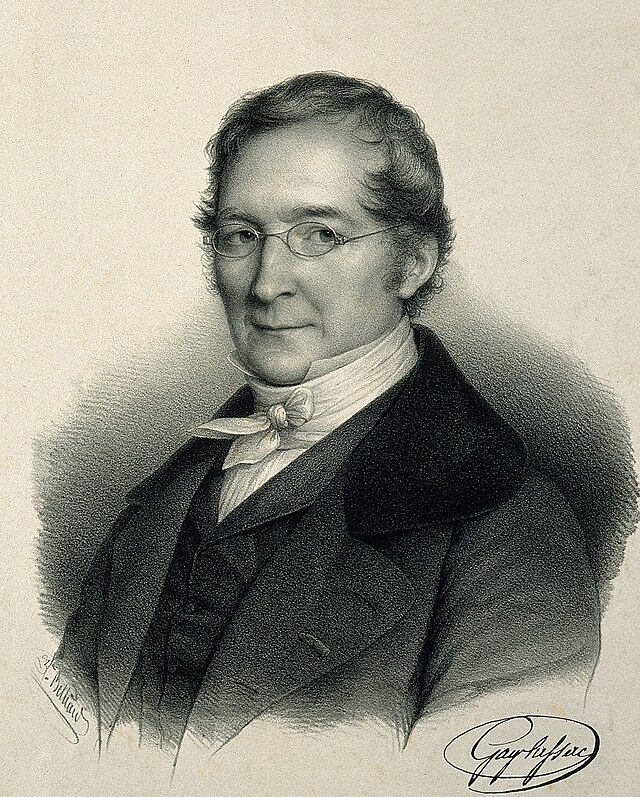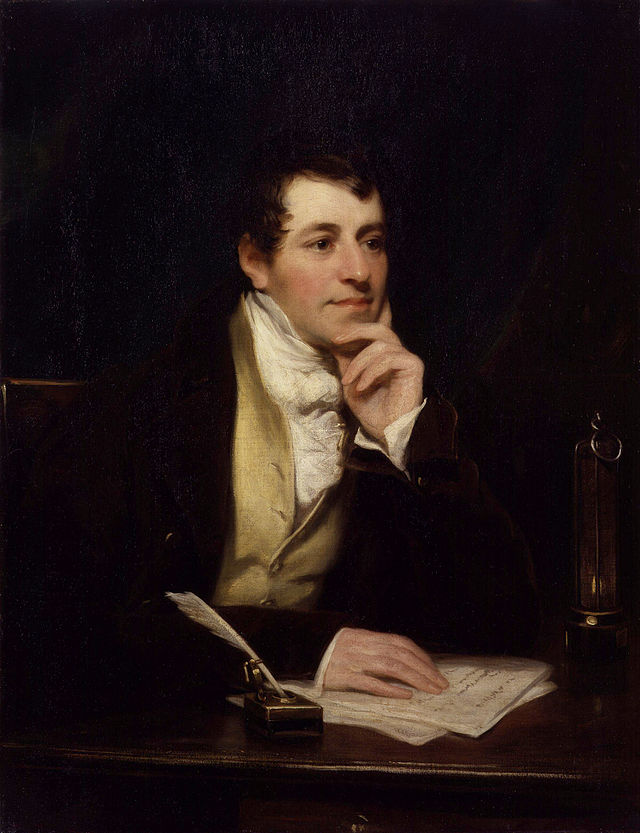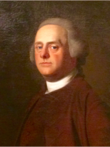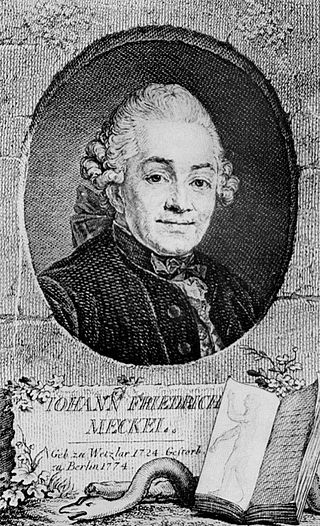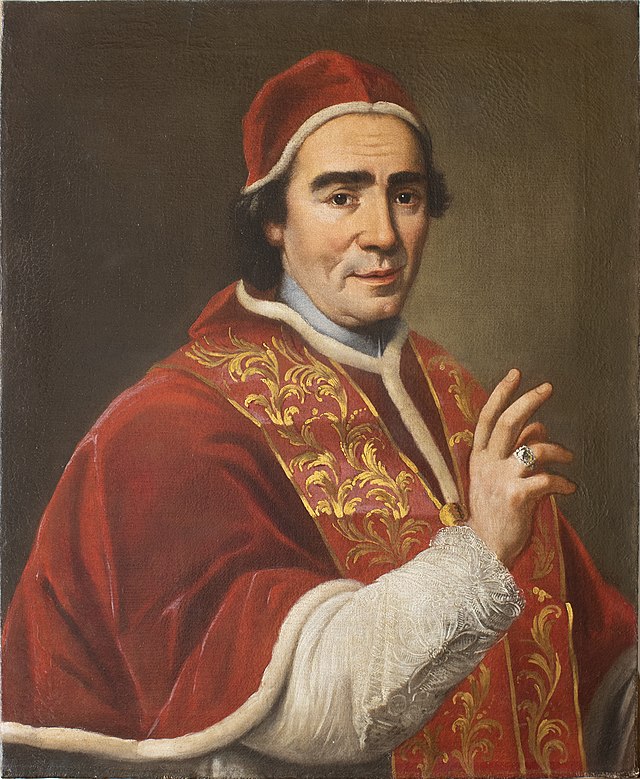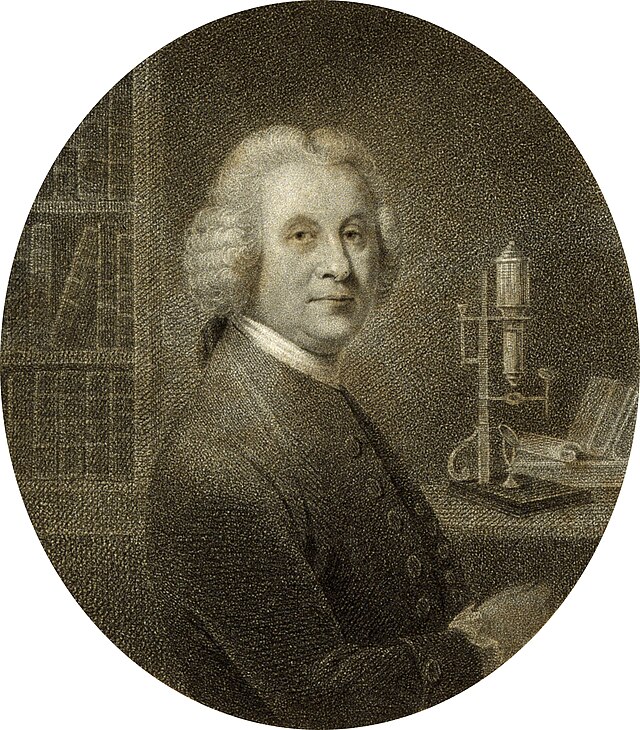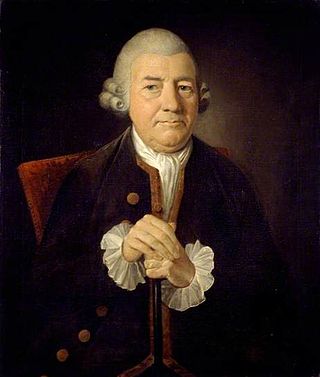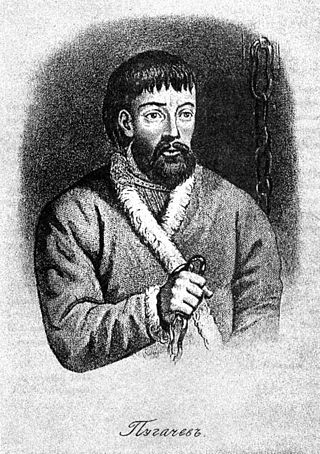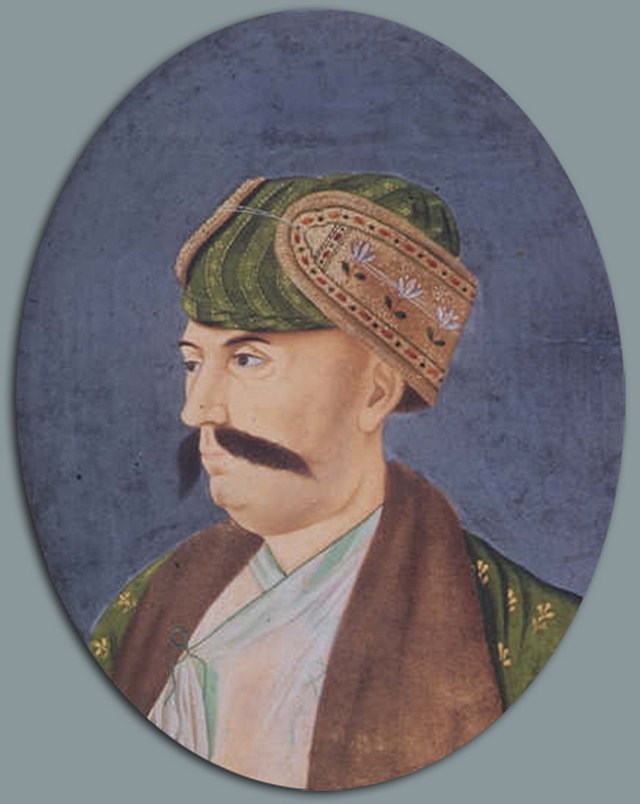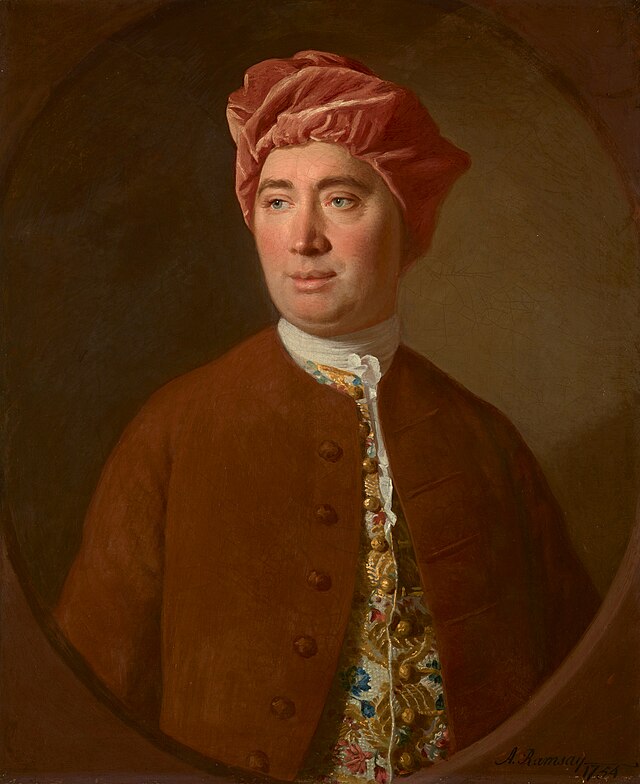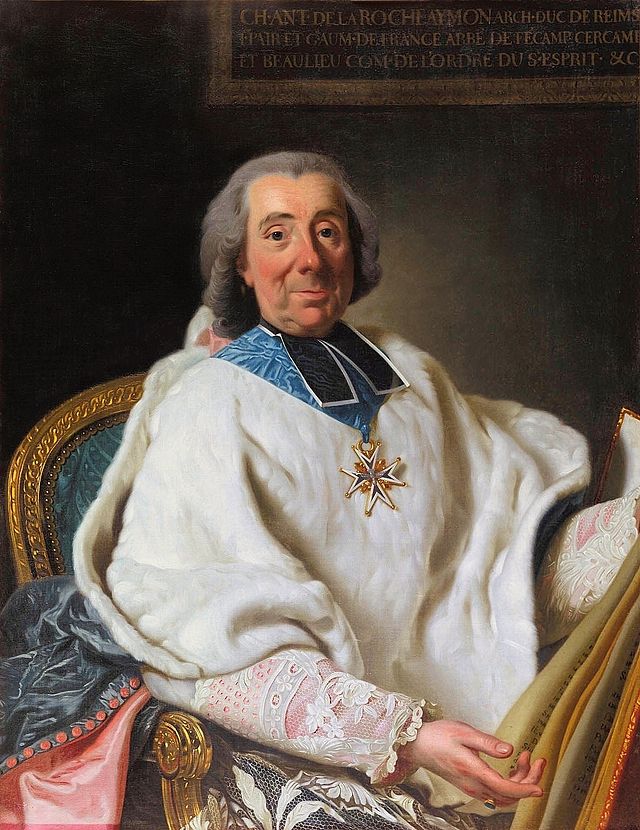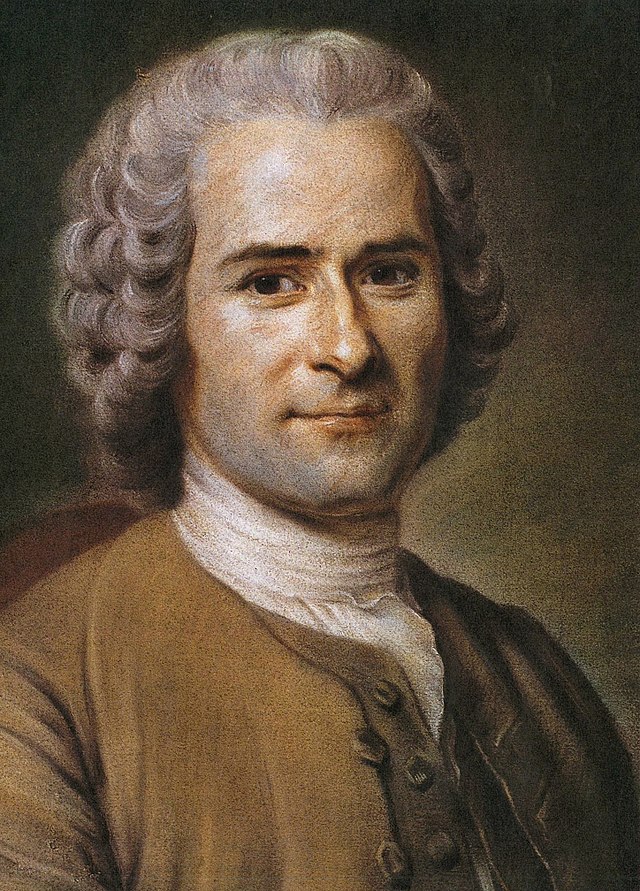The 1770s (pronounced "seventeen-seventies") was a decade of the Gregorian calendar that began on January 1, 1770, and ended on December 31, 1779. A period full of discoveries, breakthroughs happened in all walks of life, as what emerged at this period brought life to most innovations we know today.
From top left, clockwise: Englishmen and sailor James Cook concludes his inaugural and embarks on his second voyage, leaving a trail of significant milestones along its way such as the discovery of New Caledonia , Australia , Tahiti , the Antarctic Circle , and becoming the first humans to witness Antarctic waters as pictured; The United States Declaration of Independence was unanimously signed and adopted by the Second Continental Congress , announcing the colonies' intention to separate from Great Britain ; Company rule in India establishes governance over India for the first time at Calcutta , giving way for British colonialism over the Indian subcontinent , and eventually Western imperialism in Asia ; Nitrogen gas was isolated from air by Scottish scientist Daniel Rutherford ; Amazing Grace was sung for the first time as a hymn in Buckinghamshire , England at 1773; Chemist Carl Wilhelm Scheele made several breakthroughs in chemistry by discovering five chemical elements, namely oxygen (1771), barium (1772), chlorine (1774), manganese (1774), and molybdenum (1778); The Boston Tea Party protest precipitates anti-British sentiment in the Thirteen Colonies , and subsequently the American Revolutionary War ; A Russo-Turkish War lead to now-Russia 's first occupation of Crimea ; initiating Russia's influence over Crimea that has since persisted today. From nations such as the United States , birthed through hardships such as the American Revolutionary War and altercations akin to the Boston Tea Party , spheres of influence such as the Russian Empire 's sphere from its victorious Crimean claims at the Russo-Turkish War , the Industrial Revolution , and populism , their influence remains omnipresent to this day.
New lands south of the Equator were discovered and settled by Europeans like James Cook , expanding the horizons of a New World to new reaches such as Australia and French Polynesia . Deepened philosophical studies led to the publication of works such as Adam Smith 's "The Wealth of Nations neoliberal world order . Studies on chemistry and politics deepen to forge the Age of Reason for centuries to come.
1770
This section is
transcluded from
1770 .
(edit | history )
– March
January 1 – The foundation of Fort George, Bombay is laid by Colonel Keating, principal engineer, on the site of the former Dongri Fort .[ citation needed ] February 1 – Thomas Jefferson 's home at Shadwell, Virginia is destroyed by fire, along with most of his books.[1] February 14 – Scottish explorer James Bruce arrives at Gondar , capital of Abyssinia (now Ethiopia ) and is received by the Emperor Tekle Haymanot II and Ras Mikael Sehul .[2] February 22 – Christopher Seider , an 11-year-old boy in Boston in the British Province of Massachusetts Bay , is shot and killed by a colonial official, Ebenezer Richardson. The funeral sets off anti-British protests that lead to the massacre days later.[3] March 5 – Boston Massacre : Eleven American men are shot (five fatally) by British troops, in an event that helps start the American Revolutionary War five years later.March 21 – King Prithvi Narayan Shah shifts to the newly constructed Basantapur Palace in the capital Kathmandu as the first King of Unified Kingdom of NepalMarch 26 – First voyage of James Cook : English explorer Captain James Cook and his crew aboard HMS Endeavour complete the circumnavigation of New Zealand .
– June
April 12 – The Townshend Acts are repealed by Britain's Parliament by the efforts of Prime Minister Frederick North , with the exception of the increased duties on imported tea. The American colonists, in turn, stop their embargo on British imports.[4] April 18 (April 19 by Cook's log)[5] – First voyage of James Cook: English explorer Captain James Cook and his crew become the first recorded Europeans to encounter the eastern coastline of the Australian continent. Land is sighted at Point Hicks , and named after Lieutenant Hicks who first observes landform at 6am.April 20 – Battle of Aspindza : Georgian king Erekle II defeats the Ottoman forces, despite being abandoned by an ally, Russian General Totleben .April 29 – First voyage of James Cook : Captain Cook drops anchor on HMS Endeavour in a wide bay, about 16 km (10 mi) south of the present city of Sydney , Australia. Because the young botanist on board the ship, Joseph Banks , discovers 30,000 specimens of plant life in the area, 1,600 of them unknown to European science, Cook names the place Botany Bay on May 7 .May 7 – Fourteen-year-old Marie Antoinette arrives at the French court.May 16 – Marie Antoinette marries Louis-Auguste (who later becomes King Louis XVI of France ).May 20 – A stampede, at a celebration of the newly wedded Marie Antoinette and Louis-Auguste in Paris, kills more than a hundred people.[6] June 3 –
June 9 – Falklands Crisis (1770) : Some 1,600 Spanish marines, sent by the Spanish governor of Buenos Aires in five frigates, seize Port Egmont in the Falkland Islands . The small British force present promptly surrenders.[7] June 11 – First voyage of James Cook : HMS Endeavour grounds on the Great Barrier Reef .
– September
July 1 – Lexell's Comet (D/1770 L1) passes the Earth at a distance of 2,184,129 kilometres (1,357,155 mi), the closest approach by a comet in recorded history.[8] July 5 – Battle of Chesma and Battle of Larga : The Russian Empire defeats the Ottoman Empire in both battles. When the news of the defeat reaches the Ottoman city of Smyrna (July 8 ), the crowd attacks the Greek community of the city (perceived as favourable to the Russian cause) and kills an estimated 200 Greeks and three Western Europeans (although some reports estimate the number of victims at 3,000 or even 5,000 including "3 or 4 thousands who die due to the fright").[9] [10] August 1 (July 21 O.S. ) – Russo-Turkish War (1768–74) – Battle of Kagul : Russian commander Pyotr Rumyantsev routs 150,000 Turks.August 22 (August 23 by Cook's log) – First voyage of James Cook : Captain Cook determines that New Holland (Australia) is not contiguous with New Guinea , and claims the whole of its eastern coast for Great Britain, later naming it all New South Wales .c. September – Johann Gottfried Herder meets Johann Wolfgang von Goethe in Strasbourg .
September 24 – In Hillsborough, North Carolina , the Regulator Movement riots against local authorities.[11]
1770
February 21 – Georges Mouton , Marshal of France (d. 1838 )March 2 – Louis-Gabriel Suchet , Marshal of France (d. 1826 )March 20 – Friedrich Hölderlin , German writer (d. 1843 )April 3 – Theodoros Kolokotronis , Greek general (d. 1843 )April 7 – William Wordsworth , English poet (d. 1850 )April 8 – John Campbell , Australian public servant, politician (d. 1830 )April 11 – George Canning , Prime Minister of the United Kingdom (d. 1827 )April 25 – Georg Sverdrup , Norwegian philologist (d. 1850 )April 30 – David Thompson , English-Canadian explorer (d. 1857 )May 10 – Louis-Nicolas Davout , Marshal of France (d. 1823 )May 15 – Ezekiel Hart , Canadian entrepreneur, politician (d. 1843 )May 27 – Ignaz Döllinger , German anatomist, physiologist (d. 1841 )May 29 – Charles Adams , second son of President John Adams (1735–1826) (d. 1800 )June 1 – Friedrich Laun , German author (d. 1849 )
Manuel Belgrano
June 3 – Manuel Belgrano , Argentine politician, general in the Independence War (d. 1820 )June 4 – Eleonora Charlotta d'Albedyhll , Swedish countess, poet and salon holder (d. 1835 )June 7 – Robert Jenkinson, 2nd Earl of Liverpool , Prime Minister of the United Kingdom (d. 1828 )June 20 – Moses Waddel , American educator/minister and bestselling author (d. 1840 )August 1 – William Clark , American explorer, Governor of Missouri Territory, and Superintendent of Indian Affairs (d. 1838 )August 3 – King Frederick William III of Prussia (d. 1840 )August 18 – Dorothea von Rodde-Schlözer , German scholar (d. 1825 )
Georg Wilhelm Friedrich Hegel
Ludwig van Beethoven
1771
February 14 – Hanne Tott , Danish circus artist, circus manager (d. 1826 )March 16 – Antoine-Jean Gros , French painter (d. 1835 )March 20 – Heinrich Clauren , German author (d. 1854 )March 25 – Germanos III of Old Patras , Greek Metropolitan Bishop of Patras (d. 1826 )April 3 – Hans Nielsen Hauge , Norwegian revivalist, entrepreneur (d. 1824 )April 13 – Richard Trevithick , English inventor (d. 1833 )April 18 – Karl Philipp, Prince of Schwarzenberg , Austrian field marshal (d. 1820 )April 27 – Jean Rapp , French general (d. 1821 )May 1 – Cajsa Wahllund , Finnish restaurateur (d. 1843 )May 11 – Laskarina Bouboulina , Greek independence heroine (d. 1825 )
Robert Owen
Ernest Augustus, King of Hanover
June 5 – Ernest Augustus, King of Hanover (d. 1851 )June 24 – Éleuthère Irénée du Pont , French-American chemist, industrialist (d. 1834 )August 15 – Sir Walter Scott , Scottish novelist , poet (d. 1832 )[114] September 5 – Archduke Charles of Austria , Austrian general, statesman (d. 1847 )September 11 – Mungo Park , Scottish explorer (d. 1806 )[115] September 17 – Johann August Apel , German writer, jurist (d. 1816 )September 23 – Emperor Kōkaku of Japan (d. 1840 )October 9 – Frederick William, Duke of Brunswick-Wolfenbüttel (d. 1815 )October 23 – Jean-Andoche Junot , French general (d. 1813 )November 14 – Xavier Bichat , French anatomist and pathologist (d. 1802 )December 14 – Regina von Siebold , German physician and obstetrician (d. 1849 )December 27 – William Johnson , Associate Justice of the Supreme Court of the United States (d. 1834 )Unknown – William Lloyd , Welsh Anglican priest turned schoolteacher and Methodist preacher (d. 1841 )
1772
January 20 – Angélique Brûlon , French soldier, first female Knight of the French Legion of Honour (d. 1859 )January 30 – Godfrey Higgins , British archaeologist (d. 1833 )February 24 – William H. Crawford , American politician, judge (d. 1834 )March 10 – Friedrich von Schlegel , German poet (d. 1829 )March 15 – József Ficzkó , Burgenland Croatian writer (d. 1843 )April 4 – Nachman of Breslov , Hasidic rabbi and founder of the Breslov Hasidic movement (d. 1810 )April 5 – Domenico Puccini , Italian composer (d. 1815 )April 7 – Charles Fourier , French philosopher (d. 1837 )[116] April 18 – David Ricardo , British economist (d. 1823 )April 30 – Karl Gustav Himly , German surgeon, ophthalmologist (d. 1837 )May 2 – Novalis , German poet (d. 1801 )May 20 – William Congreve , British rocket pioneer (d. 1828 )May 22 – Ram Mohan Roy , Hindu religious and social reformer (d. 1833 )June 7 – Aurora Liljenroth , Swedish scholar (d. 1836 )July 11 – John Rodgers , American naval officer (d. 1838 )August 2 – Louis Antoine, Duke of Enghien (d. 1804 )August 15 – Johann Nepomuk Mälzel , German inventor (d. 1838 )
William I of the Netherlands
Samuel Taylor Coleridge
October 21 – Samuel Taylor Coleridge , English poet and philosopher (d. 1834 )October 25 – Géraud Duroc , French general (d. 1813 )November 5 – Pierre Roch Jurien de La Gravière , French admiral (d. 1849 )November 8 – William Wirt , 9th United States Attorney General (d. 1834 )November 18 – Louis Ferdinand of Prussia , German prince (d. 1806 )date unknown
approximate date
Charlotte Dacre , English Gothic novelist (d. 1825 )Lalon , Bengali philosopher, Baul saint, mystic, songwriter, social reformer and thinker (d. 1890 )
1773
Robert Fullerton
William Henry Harrison
Klemens von Metternich
May 15 – Prince Klemens Wenzel von Metternich , Austrian statesman (d. 1859 )May 19 – Arthur Aikin , English chemist and mineralogist (d. 1854 )May 31 – Ludwig Tieck , German writer (d. 1853 )June 13 – Thomas Young , English scientist (d. 1829 )July 23 – Thomas Brisbane , Scottish astronomer, Governor of New South Wales (d. 1860 )August 12 – Karl Faber , German historian (d. 1853 )August 22 – Aimé Bonpland , French explorer, botanist (d. 1858 )September 17 – Jonathan Alder , American settler (d. 1849 )
Louis Philippe I
October 4 – Harriet Auber , English poet, hymnist (d. 1862 )October 6 – Louis Philippe I , King of the French (d. 1850 )November 6 – Henry Hunt , British politician (d. 1835 )November 24 – Shadrach Bond , American politician and the first governor of Illinois (d. 1832 )December 9 – Armand Augustin Louis de Caulaincourt , French general, diplomat (d. 1827 )December 17 – Sylvain Charles Valée , Marshal of France (d. 1846 )December 21 – Robert Brown , Scottish botanist (d. 1858 )December 27 – Sir George Cayley , English aviation pioneer (d. 1857 )Unknown – Johann Gottfried Arnold , German cellist (d. 1806 )Unknown – Kyra Frosini , Greek heroine (d. 1800 )Unknown – Isabel Zendal , Spanish nurseUnknown – Anna Moór , Hungarian actress (d. 1841 )
1774
André Marie Constant Duméril born 1 January
Pietro Giordani born 1 January
Anna Bunina born 7 January
William Stewart born 10 January
Tryphosa Jane Wallis born 11 January
Marie-Thérèse Figueur born 17 January
William Blake (economist) born 31 January
Thomas Veazey born 31 January
Edward Cross (zoo proprietor) born 3 February
Valentin Stanič born 12 February
Roswell Weston born 24 February
William Farquhar born 26 February
Magdalene of Canossa born 1 March
David Semyonovich Abamelik born 10 March
Johann Caspar Horner born 12 March
Rose Fortune born 13 March
Matthew Flinders born 16 March
Claudine Thévenet born 30 March
Sophie Thalbitzer born 15 April
Franz Hegi born 16 April
Madhavrao II born 18 April
Jean-Baptiste Biot born 21 April
Anna Gottlieb born 29 April
Samuel Owen (engineer) born 12 May
Friederike von Reden born 12 May
Joseph Bouchette born 14 May
Johann Nepomuk von Fuchs born 15 May
Francis Beaufort born 27 May
Robert Tannahill born 3 June
Henry Philip Hope born 8 June
Carl Haller von Hallerstein born 10 June
Pavel Alexandrovich Stroganov born 18 June
Princess Amalie of Hesse-Homburg born 29 June
Marcia Arbuthnot born 9 July
Robert Jameson born 11 July
Axel Otto Mörner born 11 July
Charles de Graimberg born 30 July
Diodata Saluzzo Roero born 31 July
Robert Southey born 12 August
Meriwether Lewis born 18 August
Ludvig Frederik Brock born 20 August
Anton Ludwig Ernst Horn born 24 August
Elizabeth Ann Seton born 28 August
Caspar David Friedrich born 5 September
Anne Catherine Emmerich born 8 September
Johnny Appleseed born 26 September
Adolf Müllner born 18 October
Sarah Thompson, Countess Rumford born 18 October
Ignaz Heinrich von Wessenberg born 4 November
Charles Bell born 12 November
Wilhelmine of Prussia, Queen of the Netherlands born 18 November
Vasile Moga born 19 November
Elisabeth Canori Mora born 21 November
Peter Frederik Wulff born 26 November
Princess Maria Antonia of Parma born 28 November
William Henry (chemist) born 12 December
Eline Heger born 13 December
January 1
January 2 – Thomas Lynn , British soldier (d. 1847 )January 3 – Juan Aldama , Jugador de Beisbole (d. 1811 )January 4
January 5 – George Chinnery , British artist (d. 1852 )January 6
January 7
January 8 – John Gibbons , English amateur cricketer (d. 1844 )January 10
January 11
January 12 – William Cahoon , American politician (d. 1833 )January 14 – Benjamin Aislabie , cricketer (d. 1842 )January 16 – Daniel Evans , Welsh Independent minister (d. 1835 )January 17
January 18
January 19
January 20 – Charles George Beauclerk , British Member of Parliament (d. 1845 )January 21 – William Kenrick , English lawyer and politician (d. 1829 )January 22 – Francesco Fuoco , Italian philologist, economist and Catholic priest (d. 1841 )January 23 – Richard Southgate , American politician (d. 1857 )January 24
January 25 – Jules-Paul Pasquier , French jurist (d. 1858 )January 29
January 30 – Samuel Butler , English classical scholar and schoolmaster (d. 1839 )January 31
February 1
February 2 – Susan Montagu, Duchess of Manchester , British noble (d. 1828 )February 3
February 4 – Frederick Traugott Pursh , German-American botanist (d. 1820 )February 5 – Juan Fermín de San Martín , Spanish military personnel (d. 1822 )February 6 – Henry Bates Grubb , American ironmaster and businessman (d. 1823 )February 7 – Frederik Christian Kielsen , Danish naturalist (d. 1850 )February 8
February 9
February 11
February 12 – Valentin Stanič , Austrian teacher (d. 1847 )February 13
February 15 – Prince Frederick of Orange-Nassau , Dutch prince (d. 1799 )February 16
February 17
February 18 – William Clark , farmer, jurist, and politician from Dauphin, Pennsylvania (d. 1851 )February 24
February 25 – George Gore , Anglican priest in Ireland (d. 1844 )February 26
February 27 – Thomas Vasse , sea explorer (d. 1801 )February 28
April 1
April 5 – Thomas Potter , British politician (d. 1845 )April 6
April 7
April 8
April 9 – John Stanly , American politician (d. 1834 )April 11
April 12
April 13 – John W. Mulligan , attorney, U.S. Consul in Athens, Greece (d. 1862 )April 15 – Sophie Thalbitzer , Danish writer (d. 1851 )April 16
April 17
April 18
April 19 – Friedrich Wilhelm Riemer , German writer (d. 1845 )April 21
April 23 – Francis Austen , British Royal Navy officer (d. 1865 )April 24 – Jean Marc Gaspard Itard , French physician (d. 1838 )April 25 – Friedrich Wilhelm von Lepel , Prussian major general and adjutant to Prince Henry of Prussia (d. 1840 )April 26
April 28
April 29
April 30 – John Yelloly , English doctor (d. 1842 )
July 5
July 7 – Louis Auguste Marchand Plauzonne , French general (d. 1812 )July 9 – Marcia Arbuthnot , lady-in-waiting (d. 1806 )July 10 – Isaac Bullard , American politician (d. 1808 )July 11
July 12
July 14
July 15 – David Jacob van Lennep , Dutch university professor, poet and writer (d. 1853 )July 17 – John Wilbur , American Quaker minister (d. 1856 )July 20
July 24 – Franz von Klebelsberg zu Thumburg , Czech nobleman (d. 1857 )July 26 – Ernst Ludwig von Tippelskirch , Prussian army officer (d. 1840 )July 28
July 29 – Edward Wakefield , English statistician (d. 1854 )July 30 – Charles de Graimberg , French art collector and painter (d. 1864 )July 31
August 1
August 2 – Ole Clausen Mørch , Norwegian politician (d. 1829 )August 5
August 6 – Asa Wells , pioneer farmer and surveyor from Pompey (d. 1859 )August 7
August 9
August 11
August 12
August 13
August 15 – François-Joseph-Marie Fayolle , French musicologist, man of letters and mathematician (d. 1852 )August 17
August 18
August 19 – Denis-Benjamin Viger , Lower Canadian politician (d. 1861 )August 20
August 22
August 23
August 24 – Anton Ludwig Ernst Horn , German physician (d. 1848 )August 25 – Samuel William Manthey , Norwegian politician (d. 1815 )August 26 – Sir John Lubbock, 2nd Baronet , English banker, politician (d. 1840 )August 28 – Elizabeth Ann Seton , co-founder of Mount St. Mary's University in the United States, founder of the Sisters of Charity (d. 1821 )August 30 – Henri Van Assche , painter (d. 1841 )August 31 – Charles Turner , English engraver (d. 1857 )
October 2 – Johannes Spitler , American painter of furniture (d. 1837 )October 4
October 7
October 8
October 10 – Peter Nourse , American clergyman (d. 1840 )October 12
October 13
October 15 – John Boit , one of the first Americans involved in the maritime fur trade (d. 1829 )October 18
October 19 – Charles Cornwallis, 2nd Marquess Cornwallis , British noble (d. 1823 )October 21 – Archibald Campbell , British Army officer (d. 1838 )October 23
October 26 – Albert Gregorius , Belgian painter (d. 1853 )October 27 – Alexander Baring, 1st Baron Ashburton , British politician (d. 1848 )October 28
October 29 – Augustin Joseph Caron , French military officer (d. 1822 )October 30
November 1
November 2 – Georges-Simon Serullas , French pharmacist (d. 1832 )November 3 – Jakov Jakšić , Serbian postmaster (d. 1848 )November 4
November 5
November 6
November 7
November 8
November 9
November 10 – John Miller , New York politician (d. 1862 )November 11 – Marcin Dunin , Roman Catholic archbishop of Gnesen and Posen (d. 1842 )November 12
November 14 – Gaspare Spontini , Italian composer and conductor (d. 1851 )November 17 – Pierre-Alexandre Le Camus , French politician (d. 1824 )November 18
November 19 – Vasile Moga , Romanian orthodox bishop of Sibiu (d. 1845 )November 20
November 21
November 24 – Thomas Dick , British astronomer (d. 1857 )November 25 – Francisco de Paula Marín , A Spaniard influential in the early Kingdom of Hawaii; confidant of Hawaiian King Kamehameha I (d. 1837 )November 26
November 27 – John Howard Kyan , British inventor (d. 1850 )November 28
November 29
December 1 – Alexander Leith , British Army officer, died 1859 (d. 1859 )December 2
December 3 – Giuseppe Federico Palombini , military general (d. 1850 )December 4 – John Weyland , British writer and politician; (d. 1854 )December 5 – Johann Wilhelm Andreas Pfaff , German mathematician (d. 1835 )December 10 – Nicolas Morice , French navy officer (d. 1848 )December 11 – David Bowen, Felinfoel , Welsh Baptist minister from Felinfoel (d. 1853 )December 12 – William Henry , English chemist (d. 1836 )December 13
December 15 – Michel Ange Lancret , Engineer with the French Corps of Bridges and Roads (d. 1807 )December 16 – Caroline Campbell, Duchess of Argyll , British noble (d. 1835 )December 17
December 20
December 21
December 23 – Ludwig von Vincke , politician, writer and jurist (d. 1844 )December 26 – Ferdinand Oechsle , German inventor (d. 1852 )December 27
December 28
December 29 – Maurice FitzGerald, 18th Knight of Kerry , British politician (d. 1849 )December 31 – John Pringle , British Army officer (d. 1861 )date unknown – Sergey Glinka , Russian author, brother of Fyodor Glinka (d. 1847 )
1775
Stanisław Kostka Zamoyski born 13 January
Walter Savage Landor born 30 January
Gurun Princess Hexiao born 2 February
Charles Lamb born 10 February
William Hall (governor) born 11 February
Miguel Ramos Arizpe born 15 February
Simmons Jones Baker born 15 February
Jean-Baptiste Girard (soldier) born 21 February
Adolf Stieler born 26 February
Sophie Tieck born 28 February
Adam Elias von Siebold born 5 March
Constance Mayer born 9 March
Pauline Auzou born 24 March
Adam Albert von Neipperg born 8 April
J. M. W. Turner born 23 April
Alexander Johnston (1775–1849) born 25 April
George Kinloch (politician) born 30 April
Angélique Mongez born 1 May
Alexander McNair born 5 May
Pablo Morillo born 5 May
Jacob Brown born 9 May
Antoine Charles Louis de Lasalle born 10 May
Micah Brooks born 14 May
Johann Baptist Malfatti von Monteregio born 12 June
Judah Touro born 16 June
Lucy Mack Smith born 8 July
Matthew Lewis (writer) born 9 July
Richard Westmacott born 15 July
John Andrew Shulze born 19 July
Anna Harrison born 25 July
Emmanuel Dupaty born 31 July
George Tucker (politician) born 20 August
Vasily Orlov-Denisov born 8 September
Guillaume Capelle born 9 September
Murray Maxwell born 10 September
John Henry Hobart born 14 September
Giuseppe Rosaroll born 16 September
Philip Milledoler born 22 September
Robert Adrain born 30 September
Bahadur Shah Zafar born 24 October
Pierre Capelle born 4 November
Achille Fontanelli born 8 November
Paul Johann Anselm Ritter von Feuerbach born 14 November
James Carnahan born 15 November
Philander Chase born 14 December
Phineas Riall born 15 December
January 23
January 27 – Friedrich Wilhelm Joseph Schelling , German philosopher (d. 1854 )January 28
January 30 – Walter Savage Landor , English writer and poet (d. 1864 )January 31
February 1
February 2 – Gurun Princess Hexiao of the Manchu dynasty (d. 1823 )February 3
February 8
February 9
February 10
February 11 – William Hall , American politician (d. 1856 )February 12 – Charles Lloyd , English poet (d. 1839 )February 14 – William Clift , English medical illustrator and conservator (d. 1849 )February 15
February 17
February 18 – Thomas Girtin , English painter and etcher (d. 1802 )February 19
February 20
February 21
February 22
February 24
February 25 – John Caldwell , businessman and politician in Lower Canada (d. 1842 )February 26 – Adolf Stieler , German cartographer and lawyer (d. 1836 )February 28 – Sophie Tieck , German poet (d. 1833 )March 3 – Henry Prittie, 2nd Baron Dunalley , British politician (d. 1854 )March 4 – Johann Baptist von Lampi the Younger , Austrian portrait painter (d. 1837 )March 5
March 9
March 10
March 11
March 12
March 14 – Samuel Street Jr. , businessman in Upper Canada (d. 1844 )March 15 – Juan Bautista Arismendi , Venezuelan patriot and general of the Venezuelan War of Independence (d. 1841 )March 17 – Ninian Edwards , founding political figure of the state of Illinois (d. 1833 )March 19 – Ramsay Richard Reinagle , English painter (d. 1862 )March 22
March 23 – William Haseldine Pepys , English physical scientist (d. 1856 )March 24
March 25 – John Johnston , United States Indian agent (d. 1861 )March 26 – Thomas Monteagle Bayly , Virginian politician, lawyer and planter (d. 1834 )March 27 – Nicolai Abraham Holten , Danish civil servant and director of Øresund Custom House (d. 1850 )March 28 – Johann Heinrich Gossler , Hamburg banker and grand burgher (d. 1842 )March 30 – Hieronymus Karl Graf von Colloredo-Mansfeld , Austrian corps commander during the Napoleonic Wars (d. 1822 )
April 2
April 4 – Dutch Sam , British boxer (d. 1816 )April 5 – Johann Nepomuk Rust , Austrian surgeon (d. 1840 )April 6 – Edward Wynne-Pendarves , English politician (d. 1853 )April 7
April 8
April 9 – Martim Francisco Ribeiro de Andrada , Brazilian politician, leader in Brazil's independence and government (d. 1844 )April 10 – Carl Wigand Maximilian Jacobi , German psychiatrist (d. 1858 )April 12
April 13 – Adolph Henke , German physician (d. 1843 )April 14
April 16
April 21
April 22
April 23 – J. M. W. Turner , English Romantic landscape painter, watercolourist and printmaker (d. 1851 )April 25
April 27 – Pietro Ostini , Catholic cardinal (d. 1849 )April 28
April 29 – Samuel King , American Presbyterian minister, a founder of the Cumberland Presbyterian Church (d. 1842 )April 30
May 1 – Angélique Mongez , French Neoclassical artist (d. 1855 )May 3 – John Hansen Sørbrøden , Norwegian farmer (d. 1857 )May 5
May 6
May 8 – George Gwilt the younger , English architect (d. 1856 )May 9 – Jacob Brown , United States general (d. 1828 )May 10
May 12 – George Whitmore , British Army general (d. 1862 )May 14 – Micah Brooks , United States general (d. 1857 )May 17
May 19 – Antonín Jan Jungmann , Czech physician (d. 1854 )May 21 – Lucien Bonaparte , French statesman (d. 1840 )May 24
May 25 – Pelagio Palagi , Italian painter (d. 1860 )May 28 – Thomas Graves, 2nd Baron Graves , British politician (d. 1830 )May 29 – Nathan Cutler , American politician from Maine (d. 1861 )May 31
June 4 – Francesco Molino , Italian guitarist (d. 1847 )June 8 – Henry Boehm , American clergyman and pastor (d. 1875 )June 9 – Georg Friedrich Grotefend , German epigraphist and philologist (d. 1853 )June 10 – James Barbour , American politician (d. 1842 )June 12
June 13 – Antoni Radziwiłł , Polish politician (d. 1833 )June 14 – André Bruno de Frévol de Lacoste , French general of the First Empire (d. 1809 )June 15
June 16 – Judah Touro , American businessman (d. 1854 )June 17 – Alexander Cowan , Scottish papermaker and philanthropist (d. 1859 )June 18 – Orsamus Cook Merrill , American politician (d. 1865 )June 19
June 20 – Jacques Frédéric Français , French engineer and mathematician (d. 1833 )June 22
June 24 – John Kempthorne , English clergyman and hymnwriter (d. 1838 )June 25 – John Stevenson Salt , English barrister, banker and landowner (d. 1845 )June 26
June 29 – Thomas Boyle , American privateer (d. 1825 )June 30 – William Thompson , Irish philosopher (d. 1833 )
July 1 – Cephas Thompson , American artist (d. 1856 )July 2 – Aaron Peasley , American buttonmaker (d. 1837 )July 3 – Antoine Philippe, Duke of Montpensier , member of the French royal family (d. 1807 )July 5 – William Crotch , English composer, organist and artist (d. 1847 )July 8
July 9 – Matthew "Monk" Lewis , English Gothic horror writer and politician (d. 1818 )July 11 – Joseph Blanco White , Spanish-born political thinker, theologian and poet (d. 1841 )July 14
July 15
July 17
July 18
July 19
July 21
July 23
July 24 – Eugène François Vidocq , French criminal and private detective agent (d. 1857 )July 25 – Anna Harrison , American politician (d. 1864 )July 27 – Therese Brunsvik , Hungarian educationalist (d. 1861 )July 28 – Hussey Vivian, 1st Baron Vivian , British Army general (d. 1842 )July 31 – Emmanuel Dupaty , French singer and writer (d. 1851 )August 2
August 6
August 7
August 8 – Richard Blakemore , English politician (d. 1855 )August 9 – Jacob Brown , United States general (d. 1828 )August 12 – Conrad Malte-Brun , Danish-born geographer and writer on French politics (d. 1826 )August 14 – Pieter Adrianus Ossewaarde , Dutch politician (d. 1853 )August 15
August 16
August 18
August 20
August 22
August 23 – Mark Cubbon , British army officer with the East India Company (d. 1861 )August 25 – Karl Joseph Hieronymus Windischmann , German philosopher and anthropologist (d. 1839 )August 26 – William Joseph Behr , German political radical (d. 1851 )August 27
August 28
August 29 – Niels Wulfsberg , Norwegian publisher (d. 1852 )August 31
September 1 – Honoré Charles Reille , French general, Marshal of France (d. 1860 )September 4 – Jean-François Le Gonidec , Breton linguist, Bible translator (d. 1838 )September 5
September 6 – Aleksey Greig , Russian admiral (d. 1845 )September 7 – John Jebb , Irish Anglican bishop and religious writer (d. 1833 )September 8
September 9
September 10
September 11
September 12 – Josef Jüttner , Austrian cartographer and military officer (d. 1848 )September 13 – Laura Secord , Canadian heroine of the War of 1812 (d. 1868 )September 14
September 15 – William A. Griswold , American lawyer and politician (d. 1846 )September 16
September 17
September 19 – José Félix Ribas , hero of the Venezuelan War of Independence (d. 1815 )September 20 – François-Pierre Chaumeton , French botanist and physician (d. 1819 )September 22 – Philip Milledoler , American protestant minister and fifth President of Rutgers College (d. 1852 )September 23 – Jens Christian Berg , Norwegian lawyer and historian (d. 1852 )September 24 – Nathan Heald , officer in the United States Army during the War of 1812 (d. 1832 )September 25 – Pierre Flor , Norwegian politician (d. 1848 )September 26 – James Grimston, 1st Earl of Verulam , British peer and Member of Parliament (d. 1845 )September 29
September 30 – Robert Adrain , Irish-born American mathematician (d. 1843 )
October 2 – Cornelius O'Callaghan, 1st Viscount Lismore , Irish politician (d. 1857 )October 3 – Isaac von Sinclair , German writer and diplomat (d. 1815 )October 6 – Johann Anton André , German composer and music publisher (d. 1842 )October 7
October 9
October 12
October 13 – John Wentworth Loring , British Royal Navy admiral (d. 1852 )October 14 – Godfrey Macdonald, 3rd Baron Macdonald of Sleat , Scottish general (d. 1832 )October 15
October 17 – Ole Paulssøn Haagenstad , Norwegian politician (d. 1866 )October 18
October 19
October 21
October 23 – Gottlob Friedrich Thormeyer , German architect (d. 1842 )October 24 – Bahadur Shah II , Mughal emperor (d. 1862 )October 26
October 30
November 1 – Christian Adolph Diriks , Norwegian lawyer and statesman (d. 1837 )November 2
November 3 – Edward Paget , British Army general (d. 1849 )November 4 – Pierre Capelle , French chansonnier (d. 1851 )November 6 – August Wilhelm Hartmann , Danish composer (d. 1850 )November 7 – Joseph Fox , English dental surgeon (d. 1816 )November 8
November 9 – Daniel Waldron , American businessman (d. 1821 )November 10 – James Elliot , American politician (d. 1839 )November 11 – Gulbrand Eriksen Tandberg , Norwegian farmer and politician (d. 1848 )November 13
November 14 – Paul Johann Anselm Ritter von Feuerbach , German legal scholar (d. 1833 )November 15 – James Carnahan , American clergyman and educator, ninth President of Princeton University (d. 1859 )November 19
November 20 – Gustav Anton von Seckendorff , German author (d. 1823 )November 21 – Josef Servas d'Outrepont , German obstetrician (d. 1845 )November 23
November 24 – Peter Buell Allen , politician and military commander in New York State, pioneer of Vigo County and Terre Haute (d. 1833 )November 25
November 27
November 28
November 29 – Marie Antoine de Reiset , French general during the French Revolutionary Wars and the Napoleonic Wars (d. 1836 )November 30 – Jean Joseph Antoine de Courvoisier , French magistrate and politician (d. 1835 )December 2 – Joseph Denis Odevaere , Neo-Classical painter from the Southern Netherlands (modern-day Belgium) (d. 1830 )December 5 – Abijah Bigelow , American politician (d. 1860 )December 6
December 10
December 11 – Peter Little , American politician (d. 1830 )December 13 – Theodor Gottlieb von Hippel the Younger , Prussian statesman (d. 1843 )December 14
December 15 – Phineas Riall , British Army general (d. 1850 )December 16
December 17 – Carlo Rossi , Russian architect (d. 1849 )December 20
December 21 – Julien-Joseph Virey , French naturalist and anthropologist (d. 1846 )December 25
December 26 – Anton Carl Ludwig von Tabouillot , French officer, nobleman and counter-revolutionary (d. 1813 )December 28
Date unknown – Jeanne Geneviève Garnerin , French balloonist and parachutist (d. 1847 )
1776
January 1 – James M. Broom , American politician (d. 1850 )January 2 – Jeremiah Chaplin , American Reformed Baptist theologian (d. 1841 )January 3 – Thomas Morris , American politician (d. 1844 )January 4
January 6
January 8 – Thomas Langlois Lefroy , Irish politician (d. 1869 )January 9 – Ludwig Rhesa , Prussian scholar (d. 1840 )January 10 – George Birkbeck , English doctor, academic and philanthropist (d. 1841 )January 15 – Prince William Frederick, Duke of Gloucester and Edinburgh , Roman-born British prince (d. 1834 )January 16
January 17 (bapt.) – Jane Porter , English novelist (d. 1850 )January 21
January 23 – Howard Douglas , British Army general (d. 1861 )January 24
January 25 – Joseph Görres , German writer and journalist (d. 1848 )January 29 – William Bowie , American agrarian (d. 1826 )February 4
February 11 – Ioannis Kapodistrias , Governor of Greece (d. 1831 )February 12
February 14 – Christian Gottfried Daniel Nees von Esenbeck , prolific German botanist (d. 1858 )February 15 – Jean-Pierre Boyer , President of Haiti (d. 1850 )February 16 – Abraham Raimbach , British engraver (d. 1843 )February 17
February 18 – Karl August Ferdinand von Borcke , German general (d. 1830 )February 20 – Mariano Ricafort Palacín y Abarca , Spanish colonial governor of Cuba (d. 1846 )February 21 – Joseph Barss , Canadian privateer, sea captain (d. 1824 )February 23
February 25 – George William Tighe , English expatriate (d. 1837 )February 26
February 28 – François Quirouet , Canadian politician (d. 1844 )March 1
March 3 – James Parker , American politician (d. 1868 )March 4 – Guillaume Emmanuel Guignard, vicomte de Saint-Priest , Russian army commander (d. 1814 )March 5 – Gerard Troost , American mineralogist (d. 1850 )March 6 – Luigi Lambruschini , Italian Catholic cardinal (d. 1854 )March 7 – Timothy Ruggles , Canadian politician (d. 1831 )March 8
March 9
March 10
March 12 – Lady Hester Stanhope , English archaeologist (d. 1839 )March 15 – Aimé Picquet du Boisguy , French chouan general during the French Revolution (d. 1839 )March 17 – Joel Abbot , American politician (d. 1826 )March 19 – Philemon Beecher , American politician (d. 1839 )March 20
March 21 – John Frederick Frelinghuysen , United States general (d. 1833 )March 23
March 24 – Zusho Hirosato , Japanese samurai (d. 1849 )March 27 – Charles-François Brisseau de Mirbel , French botanist, politician (d. 1854 )March 30 – Vasily Tropinin , Russian artist (d. 1857 )March 31 – Joseph Küffner , German musician, composer (d. 1856 )April 1
April 3
April 6 – Jesse Bledsoe , American politician (d. 1836 )April 11
April 12
April 13 – Wilhelm von Schütz , German author, playwright (d. 1847 )April 15 – John Anstruther-Thomson , Scottish nobleman, Colonel of the Royal Fifeshire Yeomanry Cavalry (d. 1833 )April 17 – Jean-François Roger , French poet, politician (d. 1842 )April 20
April 25
April 27
April 28
May 4 – Johann Friedrich Herbart , German philosopher, psychologist (d. 1841 )May 5 – Valentine Efner , American politician (d. 1865 )May 6
May 8
May 9 – Thomas Maguire , Canadian Catholic priest (d. 1854 )May 10 – George Thomas Smart , English musician (d. 1867 )May 12 – José de La Mar , military leader, President of Peru (d. 1830 )[119] May 13 – Jett Thomas , American militia general (d. 1817 )May 17 – Amos Eaton , American botanist (d. 1842 )May 18 – Dennis Pennington , American politician (d. 1854 )May 20
May 29 – Peter Erasmus Müller , Danish historian, linguist and theologian (d. 1834 )May 31 – José Antonio de la Garza , American mayor (d. 1851 )June 1
June 4 – Isaac B. Van Houten , American politician (d. 1850 )June 6 – William Reed , American politician (d. 1837 )June 8 – Thomas Rickman , English architect, architectural antiquary (d. 1841 )John Constable June 11 – John Constable , English landscape painter (d. 1837 )June 12
June 19 – Francis Johnson , American politician (d. 1842 )June 21
June 23 – Stephen Longfellow , American politician (d. 1849 )June 28 – Charles Mathews , English actor (d. 1835 )June 29 – George Okill Stuart , Canadian clergyman (d. 1862 )July 1
July 3 – Henry Parnell, 1st Baron Congleton , Anglo-Irish politician (d. 1842 )July 4
July 5
July 10 – Samuel Powell , American politician (d. 1841 )July 11 – William Bradbery , English entrepreneur (d. 1860 )July 12 – John Christian , Manx judge (d. 1852 )July 13 – Caroline of Baden , Queen of Bavaria (d. 1841 )July 14 – Pierre Yrieix Daumesnil , French soldier (d. 1832 )July 16
July 17 – John Neilson , Canadian politician (d. 1848 )July 18 – John Struthers , Scottish poet (d. 1853 )July 20 – Ignaz Schuppanzigh , Austrian musician (d. 1830 )July 22
July 26 – Pierre Fouquier , French physician, professor of medicine (d. 1850 )July 29 – James McSherry , American politician (d. 1849 )July 30 – Sir Edward Kerrison, 1st Baronet , British general (d. 1853 )August 1
August 2
August 4 – Pierre-Simon Ballanche , French writer and counterrevolutionary philosopher (d. 1847 )August 5
August 6 – William Crooks , Canadian politician (d. 1836 )August 9
August 12
August 13 – Abraham Shepherd , American politician (d. 1847 )August 14
August 15
August 16
August 18
August 21
August 22 – Carlo Amati , Italian architect (d. 1852 )August 23
August 25 – Thomas Bladen Capel , British admiral (d. 1853 )August 26
August 27 – Barthold Georg Niebuhr , Danish-German statesman, historian (d. 1831 )August 29 – Georg Friedrich Treitschke , German librettist (d. 1842 )September 1
September 3 – Étienne Mayrand , Canadian politician (d. 1872 )September 4 – Stephen Whitney , American merchant (d. 1860 )September 5 – Augustus Simon Frazer , French-born British Army officer (d. 1835 )September 8
September 9
September 11 – Thomas Arbuthnot , British Army general (d. 1849 )September 15
September 17 – Langdon Cheves , American politician (d. 1857 )September 18 – Thomas Gleadowe-Newcomen, 2nd Viscount Newcomen , English politician (d. 1825 )September 21
September 27
October 1 – Augustus Warren Baldwin , Upper Canada naval officer, political figure (d. 1866 )October 3 – Thomas Walsh , Vicar Apostolic of England and Wales (d. 1849 )October 4
October 6
October 8 – Pieter van Os , Dutch painter, engraver (d. 1839 )October 12 – Jean-Michel Mahé , French Navy officer, captain (d. 1833 )October 13
October 14
October 18 – Cowles Mead , American politician (d. 1844 )October 20 – John Rolls of The Hendre , British judge (d. 1837 )October 21 – George Izard , United States general (d. 1828 )October 22 – Edward Draper , British military officer, civil servant in Mauritius (d. 1841 )October 25 – Patrick Neill , Scottish printer, horticulturalist (d. 1851 )October 28 – Joachim Haspinger , Catholic priest, leader of the Tyrolese revolt against Napoleon (d. 1858 )October 30
October 31 – Francis Locke Jr. , American politician (d. 1823 )November 1 – Abraham McClellan , American politician (d. 1851 )November 5 – Abraham Teerlink , Dutch painter (d. 1857 )November 7
November 10
November 11 – Philip E. Thomas , American banker, railroad executive (d. 1861 )November 14 – Henri Dutrochet , French physician (d. 1847 )November 15
November 17
November 20
November 24
November 29 – Harcourt Lees , Irish clergyman, political pamphleteer (d. 1852 )November 30
December 1
December 2 – Louis Alexis Baudoin , French naval officer (d. 1805 )December 3
December 5 – Konrad Johann Martin Langenbeck , German surgeon (d. 1851 )December 6 – Theodorick Bland , United States federal judge (d. 1846 )December 7 – Reuben Whallon , American politician (d. 1843 )December 8
December 10
December 12 – Nicholas Conyngham Tindal , English lawyer, politician (d. 1846 )December 13 – James Hawkes , American politician (d. 1865 )December 14 – Ingelbrecht Knudssøn , Norwegian politician (d. 1826 )December 16
December 19
December 20 – José María del Castillo y Rada , President of Colombia (d. 1833 )December 25 – John Slater , American businessman (d. 1843 )December 26 – Charles Hamilton Smith , British artist (d. 1859 )December 27 – Nikolay Kamensky , Russian general (d. 1811 )December 29 – Gustaf af Wetterstedt , Swedish politician (d. 1837 )December 30 – William Drayton , American politician (d. 1846 )December 31 – Johann Spurzheim , German physician (d. 1832 )
1777 * January – William Barton , English cricketer (d. 1825 )
January 2 – Christian Daniel Rauch , German sculptor (d. 1857 )January 7 – Lorenzo Bartolini , Italian sculptor (d. 1850 )January 11 – Vincenzo Borg , Maltese merchant, rebel leader (d. 1837 )January 13 – Elisa Bonaparte , Grand Duchess of Tuscany, sister of Napoleon Bonaparte (d. 1820 )January 25 – Karoline Jagemann , German actor (d.1848)February 3 – John Cheyne , British physician, surgeon and author (d. 1836 )February 10 – Amable Berthelot , Quebec lawyer, author and political figure (d. 1847 )February 12
February 18 – Andreas Arntzen , Norwegian politician (d. 1837 )February 20 – Zacheus Burnham , Canadian farmer, judge and public figure (d. 1857 )February 26 – Matija Nenadović , Prime Minister of Serbia (d. 1854 )March 3 – Adolphe Dureau de la Malle , French geographer, naturalist, historian and artist (d. 1857 )March 10 – Robert Allison (Pennsylvania politician) , U.S. Representative (d. 1840 )March 13 – Charles Lot Church , Nova Scotia politician (d. 1864 )
Roger B. Taney
Carl Friedrich Gauss
April 30 – Carl Friedrich Gauss , German mathematician, astronomer and physicist (d. 1855 )May 4 – Richard Bourke , Australian governor (d. 1855 )May 8 – Mateli Magdalena Kuivalatar , Finnish-Karelian folksinger (d. 1846 )May 11 – Samuel Bridger , English cricketerMay 12 – Mary Reibey , Australian businessperson (d. 1855 )May 18 – John George Children , British chemist, mineralogist and zoologist (d. 1852 )June 1 – Fernando Errázuriz Aldunate , president of Chile (d. 1841 )June 12 – Robert Clark , American politician (d. 1837 )June 14 – Heman Allen (of Milton) , U.S. Representative (d. 1844 )June 15 – David Daniel Davis , British physician (d. 1841 )June 22
June 23 – Frederick Bates , American politician (d. 1825 )
Paavo Ruotsalainen
Hans Christian Ørsted
Heinrich von Kleist
November 7 – Richard Bassett (clergyman) , Welsh cleric (d. 1852 )November 13 – Kunwar Singh , Leader during the Indian Rebellion of 1857 (d. 1858 )November 14 – Nathaniel Claiborne , American politician (d. 1859 )November 24 – Samuel Butts , American militia officer (d. 1814 )December 1 – Thomas Bradford , British Army officer (d. 1853 )December 4 – Juliette Récamier , French writer (d. 1849 )December 10 – William Conner , American trader, politician (d. 1855 )December 14 – Du Pré Alexander, 2nd Earl of Caledon , Irish peer, landlord and colonial administrator (d. 1839 )December 15 – Agostino Aglio , Italian painter, decorator and engraver (d. 1857 )December 16 – Madame Clicquot Ponsardin , French champagne producer (d. 1866 )December 21 – John Campbell, 7th Duke of Argyll , Scottish peer, Whig politician (d. 1847 )
Alexander I of Russia
Suleiman al-Halabi , Syrian student, assassin (d. 1800 )Carlos Anaya , Uruguayan politician (d. 1862 )Charles James Apperley , English sportsman, sporting writer (d. 1843 )Carlo Armellini , Italian politician, activist and jurist (d. 1863 )Mevlana Halid-i Bagdadi , Ottoman mystic (d. 1826 )Connell James Baldwin , Irish soldier, civil servant (d. 1861 )Karl Friedrich Becker , German educator, historian (d. 1806 )Vicente Benavides , Chilean soldier (d. 1822 )John Bennett (Hampshire cricketer) (d. 1857 )William Bellinger Bulloch , U.S. Senator (d. 1852 )Sophia Campbell , Australian artist (d. 1833 )Abiel Chandler , U.S. philanthropist (d. 1851 )John Claiborne , U.S. politician (d. 1808 )Charles Othon Frédéric Jean-Baptiste de Clarac , French artist, scholar and archaeologist (d. 1847 )Thomas Cochran (judge) , Canadian judge (d. 1804 )Anselmo de la Cruz , Chilean political figure (d. 1833 )Thomas Day , American judge (d. 1855 )Benjamin D'Urban , British general, colonial administrator (d. 1849 )Tu'i Malila , Malagasy-born tortoise, longest living animal on record (d. 1965 )
1778 * January 1
Thomas Lincoln
January 6 – Thomas Lincoln , Farmer, Carpenter (d. 1851 )January 7 – Anthony Todd Thomson , British dermatologist (d. 1849 )January 9 – Thomas Brown , Scottish metaphysician (d. 1820 )January 10 – Teodoro Sánchez de Bustamante , Argentine politician (d. 1851 )January 11 – Agathon Jean François Fain , French historian (d. 1837 )January 12 – William Herbert , British politician (d. 1847 )January 13 – Sir Isaac Goldsmid, 1st Baronet , British financier and one of the leading figures in the Jewish emancipation in the United Kingdom (d. 1859 )January 15 – Joseph Adamy , Nassauian politician (d. 1849 )January 16
January 17
Donald Macdonell , Canadian politician (d. 1861 )George Black , Canadian politician, businessman and important shipbuilder in Quebec, during the earlier part of the 19th century (d. 1854 )January 18 – George Bellas Greenough , British geologist (d. 1855 )January 20 – Louis Antoine François Baillon , French naturalist, collector (d. 1855 )January 21 – Jeremiah O'Brien , American politician (d. 1858 )January 23 – Alire Raffeneau Delile , French botanist (d. 1850 )January 24 – Charles Ferdinand, Duke of Berry , England (d. 1820 )January 25 – Matsudaira Norihiro , Japanese daimyō who ruled the Nishio Domain (d. 1839 )January 26
January 27
January 28 – James Tallmadge, Jr. , American politician (d. 1853 )January 29 – John Williams , Tennessee politician (d. 1837 )January 31 – Franz Anton von Kolowrat-Liebsteinsky , Austrian statesman (d. 1861 )February 1 – Joseph Richardson , American politician (d. 1871 )February 2 – Mary Anne Talbot , British wartime cross-dresser (d. 1808 )February 3
February 4 – Augustin Pyramus de Candolle , Swiss botanist (d. 1841 )February 5 – Jan Nepomucen Umiński , Polish general (d. 1851 )February 6 – Ugo Foscolo , Italian writer, revolutionary and poet (d. 1827 )[121] February 13 – William P. Van Ness , United States federal judge (d. 1826 )February 14 – Fernando Sor , Spanish musician (d. 1839 )February 16
February 19
February 22
José de San Martín
February 25 – José de San Martín , Argentine general (d. 1850 )March 1
March 2
March 3
March 4
March 6
March 8 – Jean-Toussaint Arrighi de Casanova , French soldier, diplomat (d. 1853 )March 10
March 19 – Edward Pakenham , Irish-born British general (d. 1815 )March 22
March 23 – Paul Traugott Meissner , Austrian chemist (d. 1864 )March 24
March 25 – Sophie Blanchard , French aeronaut (d. 1819 )March 26 – Edward Blakeney , British Army officer (d. 1868 )March 28 – Ludvig Stoud Platou , Norwegian politician (d. 1833 )March 30 – Robert Moore , American politician (d. 1831 )March 31 – Coenraad Jacob Temminck , Dutch zoologist (d. 1858 )April 1 – Benjamin Jacob , British musician (d. 1829 )April 3 – Pierre Bretonneau , French physician (d. 1862 )April 7 – John J. Ely , Member of the New Jersey General Assembly (d. 1852 )April 9
William Hazlitt
April 10
April 12 – John Strachan , Bishop of Toronto (d. 1867 )April 14 – George Philipp Ludolf von Beckedorff , prominent Prussian Catholic convert, parliamentarian (d. 1858 )April 15
April 18
April 19 – Elizabeth Wynne Fremantle , main author of the extensive Wynne Diaries , wife of Royal Navy officer Thomas Fremantle (1765–1819) (d. 1857 )April 23 – John Harvey , British Army general (d. 1852 )April 24 – John Graham , soldier notable for founding Grahamstown (d. 1821 )April 27 – Henry Drury , English educator (d. 1841 )April 28 – Adriaan van der Hoop , Dutch banker, politician (d. 1854 )April 29 – Thomas Bateman , British physician, pioneer in the field of dermatology (d. 1821 )April 30 – Arvid David Hummel , Swedish entomologist (d. 1836 )
May 2 – Nathan Bangs , American Methodist theologian (d. 1862 )May 3 – Samuel Freeze , Canadian politician (d. 1844 )May 6 – Henry Phillpotts , English bishop (d. 1869 )May 8 – Marie-Louise Coidavid , Queen of the Kingdom of Haiti (1811–20) as the spouse of Henri I of Haiti (d. 1851 )May 9 – Eli Ayers , Liberian politician (d. 1822 )May 10 – William Ladd , American activist (d. 1841 )May 12 – August Zeune , German educator (d. 1853 )May 13 – Honoré V, Prince of Monaco (d. 1841 )May 17 – Benjamin Bowring , English watchmaker (d. 1846 )May 18
May 19
May 25 – Claus Harms , German clergyman, theologian (d. 1855 )May 29 – Charles Kemeys Kemeys Tynte , British politician (d. 1860 )May 30 – Richard Skinner , American politician (d. 1833 )May 31 – Horatio Seymour , American politician (d. 1857 )June 2 – Jean Julien Angot des Rotours , French colonial governor (d. 1844 )June 4 – Martin Parmer , American politician (d. 1850 )June 6 – Edmund Varney , American politician (d. 1847 )June 7 – David Willson , Canadian Quaker minister (d. 1866 )June 11 – John Robison , British inventor (d. 1843 )June 13 – Frederick Louis, Hereditary Grand Duke of Mecklenburg-Schwerin (d. 1819 )June 14 – John Cushing Aylwin , United States naval officer (War of 1812) (d. 1813 )
Harry Croswell
June 16
June 17
June 19 – Robert Allen , Tennessee politician (d. 1844 )June 20 – Jean Baptiste Gay, vicomte de Martignac , moderate royalist French statesman, during the Bourbon Restoration (1814–30) under King Charles X (d. 1832 )June 22 – George Percy, 5th Duke of Northumberland , British politician (d. 1867 )June 23 – Richard W. Meade , American merchant and art collector (d. 1828 )June 26 – Mariya Svistunova , lady-in-waiting at the Russian Court (d. 1866 )June 27 – Sir John Astley, 1st Baronet , British politician (d. 1842 )June 28
July 2 – Daniel Wilson , Bishop of Calcutta (d. 1858 )July 3 – Carl Ludvig Engel , German architect (d. 1840 )July 6 – Jean Baptiste Bory de Saint-Vincent , French scientist (d. 1846 )July 7 – Beau Brummell , English man of fashion (d. 1840 )[124] July 10
July 11 – Timothy Fuller , American politician (d. 1835 )July 12 – Maria Dalle Donne , Bolognese physician (d. 1842 )July 13 – Samuel Stevens, Jr. , American politician (d. 1860 )July 15
July 17 – Benjamin Isaacs , Connecticut politician (d. 1846 )July 19
July 20 – Joshua Tetley , British brewer (d. 1859 )July 28 – Charles Stewart , American naval commander (d. 1869 )July 30
August 2 – Georg Anton Rollett , Austrian naturalist (d. 1842 )August 5 – Otto Christian Blandow , German bryologist (d. 1810 )August 8 – John Bonfoy Rooper , British landowner, MP (d. 1855 )
Friedrich Ludwig Jahn
Bernardo O'Higgins
Clemens Brentano
September 9 – Clemens Brentano , German poet, novelist (d. 1842 )[127] September 10 – Joshua Lawrence , American Baptist minister (d. 1843 )September 12 – William Davidson , American politician (d. 1857 )September 14
September 15 – Augustin Caron , Canadian politician (d. 1862 )September 19
September 20
September 21 – Carl Ludwig Koch , German entomologist (d. 1857 )September 24 – Michał Gedeon Radziwiłł , Polish-Lithuanian noble (d. 1850 )September 25
September 26 – Jonathan Fisk , American politician (d. 1832 )September 27
September 28
September 29
October 5
October 7
October 8 – Hyacinthe-Louis de Quélen , French Catholic bishop (d. 1839 )October 9
October 13 – William Marks , American politician (d. 1858 )October 14 – Francis Fane , British Royal Navy admiral (d. 1844 )October 19 – Valentine Blacker , Irish-born Surveyor General of India (d. 1826 )October 22 – Javier de Burgos , Spanish writer, politician and jurist (d. 1849 )[128] October 23 – Kittur Chennamma , Indian queen regnant (d. 1829 )October 26 – Charles Grant, 1st Baron Glenelg , British politician (d. 1866 )October 28 – Ezekiel Blomfield , British minister (d. 1818 )October 29 – William Creighton, Jr. , United States federal judge (d. 1851 )October 30 – Benjamin Ames , American politician (d. 1835 )October 31
November 1
November 3 – Karlo Lanza , Dalmatian politician (d. 1834 )
Giovanni Battista Belzoni
November 5
November 8 – Joseph Signay , Canadian Catholic bishop (d. 1850 )November 11 – Nils Astrup , Norwegian politician (d. 1835 )November 14
November 15
November 16 – Johann Joseph von Prechtl , Austrian technologist (d. 1854 )November 18 – Lord William Stuart , British politician (d. 1814 )November 19 – Charles de Salaberry , Canadian politician (d. 1829 )November 21
November 22 – Aurora Wilhelmina Koskull , Swedish lady-in-waiting, politically active salonist (d. 1852 )November 23
November 24 – Salusbury Pryce Humphreys , British Royal Navy officer during the French Revolutionary and Napoleonic Wars, and the War of 1812 (d. 1845 )November 25
November 26
November 28
November 29 – Hryhorii Kvitka-Osnovianenko , Ukrainian writer, journalist, and playwright (d. 1843 )[129] November 30 – Andrés Guazurary , Argentine general (d. 1825 )
Joseph Louis Gay-Lussac
Humphry Davy
Joseph Grimaldi
1779
Stephen Decatur
Francis Scott Key
January 5 – Stephen Decatur , American naval officer (d. 1820 )January 18 – Peter Mark Roget , British lexicographer (d. 1869 )February 1 – Nikolaus von Krufft , Austrian composer and civil servant (d. 1818 )March 6 – Antoine-Henri Jomini , French general (d. 1869 )March 15 – William Lamb, 2nd Viscount Melbourne , Prime Minister of the United Kingdom (d. 1848 )March 21 – José Bernardo de Tagle y Portocarrero, Marquis of Torre Tagle , Peruvian soldier and politician, 2nd President of Peru (d. 1825)[132] May 28 – Thomas Moore , Irish poet (d. 1852 )June 20 – Dorothy Ann Thrupp , British psalmist, hymnwriter, translator (d. 1847 )July 8 – Giorgio Pullicino , Maltese painter and architect (d. 1851 )August 1 – Francis Scott Key , American lawyer, lyricist (d. 1843 )August 8 – Benjamin Silliman , American chemist, educator and abolitionist (d. 1864 )August 20 – Jöns Jacob Berzelius , Swedish chemist (d. 1848 )August 29 – Jean-Auguste-Dominique Ingres , French painter (d. 1867 )September 8 – Mustafa IV , sultan of the Ottoman Empire (d. 1808 )September 18 – Joseph Story , Associate Justice of the Supreme Court of the United States (d. 1845 )November 14 – Adam Gottlob Oehlenschläger , Danish poet (d. 1850 )December 12 – Madeleine Sophie Barat , French Catholic saint, founder of the Society of the Sacred Heart (d. 1865 )December 24 – George Washington Lafayette date unknown – Giacomo Beltrami , Italian explorer (d. 1855 )
1770
January 7 – Carl Gustaf Tessin , Swedish politician (b. 1695 )January 8 – John Michael Rysbrack , Flemish sculptor (b. 1694 )January 20 – Charles Yorke , Lord Chancellor of Great Britain (b. 1722 )January 27 – Johann Karl Philipp von Cobenzl , 18th-century politician (b. 1712 )January 30 – Giovanni Pietro Francesco Agius de Soldanis , Maltese linguist, historian and cleric (b. 1712 )January 27 – Philippe Macquer , French historian (b. 1720 )February 26 – Giuseppe Tartini , Italian composer, violinist (b. 1692 )March 5 – Crispus Attucks , African-American dockworker, first to die in the Boston Massacre (b. 1723 )Giovanni Battista Tiepolo March 27 – Giovanni Battista Tiepolo , Venetian artist (b. 1696 )April 27 – José Solís Folch de Cardona , Spanish colonial governor (b. 1716 )April 25 – Jean-Antoine Nollet , French abbot, physicist (b. 1700 )May 30 – François Boucher , French painter (b. 1703 )June 22 – Philip Carteret Webb , English barrister (b. 1702 )June 23 – Mark Akenside , English poet, physician (b. 1721 )July 17 – Joseph Paris Duverney , French banker (b. 1684 )July 21 – Charlotta Frölich , Swedish agronomist (b. 1698 )July 27 – Robert Dinwiddie , British colonial Governor of Virginia (b. 1693 )August 15 – Edward Antill (colonial politician) , American winemaker (b. 1701 )August 24 – Thomas Chatterton , English poet (b. 1752 )September 2 – Hongzhou , Manchu prince of the Qing Dynasty (b. 1712 )September 9 – Bernhard Siegfried Albinus , German anatomist (b. 1697 )September 22 – Ignatius of Santhià , Italian Catholic priest (b. 1686 )
George Whitefield
September 30
October 14 – Benning Wentworth , colonial governor of New Hampshire (b. 1696 )October 18 – John Manners, Marquess of Granby , British soldier (b. 1721 )November 9 – John Campbell, 4th Duke of Argyll , Scottish politician (b. c. 1693 )November 13 – George Grenville , Prime Minister of Great Britain (b. 1712 )[133] November 24 – Charles-Jean-François Hénault , French historian (b. 1685 )December 4 – John Perceval, 2nd Earl of Egmont , Irish politician (b. 1711 )December 5 – James Stirling , Scottish mathematician (b. 1692 )December 6 – Neri Maria Corsini , Italian Catholic priest and cardinal (b. 1685 )
1771
Rev. Samuel Phillips
Christopher Smart
May 21 – Christopher Smart , English poet (b. 1722 )May 27 – Anthony Ashley Cooper, 4th Earl of Shaftesbury , English philanthropist (b. 1711 )[134] June 5 – Samuel Phillips (reverend) , colonial American minister, 1st Pastor of the South Church in Andover (b. 1690 )June 8 – George Montagu-Dunk, 2nd Earl of Halifax , English statesman (b. 1716 )July 14 – Chen Hongmou , Chinese scholar and philosopher (b. 1696 )July 22 – William Whitmore (British Army officer) , British general (b. 1714 )July 30 – Thomas Gray , English writer (b. 1716 )September 13 – John Gambold , British bishop (b. 1711 )September 17 – Tobias Smollett , Scottish novelist (b. 1721 )[135] October 22 – Charles-Nicolas d'Oultremont , Roman Catholic bishop (b. 1716 )November 4 – Charles Lucas (politician) , Irish apothecary (b. 1713 )November 6 – John Bevis , English physician, astronomer (b. 1695 )November 13 – Konrad Ernst Ackermann , German actor (b. 1712 )
Giovanni Battista Morgagni
1772
Emanuel Swedenborg
March 29 – Emanuel Swedenborg , Swedish philosopher and mathematician (b. 1688 )April 28 – Johann Friedrich Struensee , Danish royal physician and de facto regent, executed (b. 1737 )May 1 – Gottfried Achenwall , German statistician (b. 1719 )May 22 – Durastante Natalucci , Italian historian (b. 1687 )June 15 – Louis-Claude Daquin , French composer (b. 1694 )June 18
June 22 – François-Vincent Toussaint , French writer most famous for Les Mœurs (The Manners) (b. 1715 )August 31 – William Borlase , English naturalist (b. 1695 )September 30 – James Brindley , English canal builder (b. 1716 )October 7 – John Woolman , American Quaker preacher, abolitionist (b. 1720 )
Jean-Joseph de Mondonville
October 8 – Jean-Joseph de Mondonville , French violinist, composer (b. 1711 )October 14 – Benjamin Green , Canadian merchant and judge (b. 1713 )October 16 – Ahmad Shah Durrani , Afghan founder of the Durrani Empire (cancer) (b. 1724 )October 19 – Andrea Belli , Maltese architect, businessman (b. 1703 )November 10 – Pedro Antonio Joaquim Correa da Serra Garção , Portuguese poet (b. 1724 )November 18 – Madhavrao I , ruler of India (b. 1745 )November 19 – William Nelson , American colonial governor of Virginia (b. 1711 )December 4 – Dov Ber of Mezeritch , the Great Maggid, a preacher and founder of Hasidism .December 7 – Martín Sarmiento , Spanish writer, scholar (b. 1695 )[137] date unknown – Panna Cinka , Hungarian violinist (b. 1711 )
1773
Philip Stanhope, 4th Earl of Chesterfield
March 24
March 20 – Gottlieb Heinrich Totleben , German noble (b. 1715 )May 8 – Ali Bey Al-Kabir , Mamluk Sultan of Egypt (b. 1728 )May 15 – Alban Butler , English Catholic priest, writer (b. 1710 )May 28 – John Wayles , American lawyer and planter (b. 1715 )June 21 – Jorge Juan y Santacilia , Spanish geodesist (b. 1713 )June 27 – Mentewab , dowager Empress of Ethiopia (b. c. 1706 )July 5 – Francisco José Freire , Portuguese historian, philologist (b. 1719 )July 12 – Johann Joachim Quantz , German flutist, composer (b. 1697 )July 23 – George Edwards , English ornithologist and naturalist (b. 1694 )July 25 – Axel Löwen , Swedish duke (b. 1686 )August 3 – Stanisław Konarski , Polish writer (b. 1700 )August 19
August 20 – Enrique Florez , Spanish historian (b. 1701 )September 23 – Johan Ernst Gunnerus , Norwegian bishop and botanist (b. 1718 )October 14 – Septimanie d'Egmont , French salonist (b. 1740 )October 30 – Philippe de La Guêpière , French architect (b. 1725 )November 2 – John Glas , Scottish minister (b. 1695 )November 7 – Princess Anne Charlotte of Lorraine , French royal (b. 1714 )
Friedrich Wilhelm von Seydlitz
1774
Mustafa III died 21 January
Countess Palatine Caroline of Zweibrücken died 30 March
Oliver Goldsmith died 4 April
Christian Wilhelm Ernst Dietrich died 23 April
Maria Machteld van Sypesteyn died 26 April
William Hewson died 1 May
Louis XV died 10 May
Joseph Gerrish died 3 June
Joshua Kirby died 20 June
Anna Morandi Manzolini died 9 July
Caroline Fox, 1st Baroness Holland died 24 July
Johann Jakob Reiske died 14 August
Imperial Noble Consort Qinggong died 21 August
Johann Friedrich Meckel, the Elder died 18 September
Pope Clement XIV died 22 September
Willem Bentinck van Rhoon died 13 October
Robert Fergusson died 16 October
Abraham Tucker died 20 November
Johann Siegmund Popowitsch died 21 November
Henry Baker died 25 November
Deborah Read died 19 December
Paul Whitehead (satirist) died 20 December
February 1 – Johann Heinrich Zopf , German historian (b. 1691 )February 4 – Charles Marie de La Condamine , French explorer, geographer, and mathematician (b. 1701 )February 8 – Thomas Belasyse, 1st Earl Fauconberg , British peer (b. 1699 )February 17 – Robert Jones , English politician (b. 1704 )February 18 – Karl Michael von Attems , Austrian Catholic archbishop and prince of the Holy Roman Empire (b. 1711 )February 25 – Johann Georg, Chevalier de Saxe , German general (b. 1704 )February 27 – Knud Leem , Norwegian priest and linguist (b. 1697 )February 28 – Anthony Askew , English physician and book collector (b. 1722 )
March 1 – Pierre-Antoine Gourgaud , French actor (b. 1706 )March 2 – William Talbot , English evangelical clergyman (b. 1717 )March 3 – Andrew Oliver , American merchant and public official (b. 1706 )March 4 – William Boys , Royal Navy officer (b. 1700 )March 5 – Georg Joachim Mark , German theologian (b. 1726 )March 7 – Carlo Alberto Guidoboni Cavalchini , Catholic cardinal (b. 1683 )March 10 – William Browne , English physician (b. 1692 )March 18 – Matthew Fetherstonhaugh , British politician (b. 1714 )March 19 – Lucas Ramírez Galán , Roman Catholic archbishop (b. 1715 )March 21 – Diego Bernardo de Peredo y Navarrete , Mexican Roman Catholic clergyman, bishop of Yucatán (b. 1696 )March 25
March 30 – Countess Palatine Caroline of Zweibrücken , German noble (b. 1721 )
April 1 – Claudius Amyand , English politician (b. 1718 )April 4 – Oliver Goldsmith , Anglo-Irish writer, poet, and physician (b. 1728 )April 5 – Situ Panchen , Tibetan lama and painter (b. 1700 )April 11 – Elias Gottlob Haussmann , German artist (b. 1695 )April 15
April 17 – John Winslow , British Army general (b. 1703 )April 18
April 20
April 23
April 24 – Sara Banzet , French educator, diarist (b. 1745 )April 25 – John Fane, 9th Earl of Westmorland , English Earl (b. 1728 )April 26 – Maria Machteld van Sypesteyn , Dutch painter (b. 1724 )April 28 – Gottfried Lengnich , historian and politician (b. 1689 )April 29 – Eland Mossom , lawyer, recorder of the City of Kilkenny and representative in the Parliament of Ireland (b. 1709 )
May 1 – William Hewson , British physiologist (b. 1739 )May 3 – Heinrich August de la Motte Fouqué , German general (b. 1698 )May 4
May 6 – John Ward, 1st Viscount Dudley and Ward , British politician (b. 1704 )May 8 – Réginald Outhier , French astronomer and priest (b. 1694 )May 10
May 12 – Giuseppe Antonio Luchi , Italian painter (b. 1709 )May 17 – Jeremiah Theus , American artist (b. 1716 )May 18 – William FitzRoy, 3rd Duke of Cleveland , English noble (b. 1698 )May 23 – Tatiana Mikhailovna Troepolskaya , actor (b. 1744 )May 26 – Wilhelm Reinhard von Neipperg , Austrian field marshal (b. 1684 )
July 1 – Henry Fox, 1st Baron Holland , British politician (b. 1705 )July 4 – William Price , Welsh High Sheriff and antiquarian (b. 1690 )July 8 – Brooke Forester , British politician (b. 1717 )July 9 – Anna Morandi Manzolini , internationally known Italian anatomist and anatomical wax modeller (b. 1714 )July 11 – Sir William Johnson, 1st Baronet , Anglo-Irish official of the British Empire (b. 1715 )July 13 – Otto von Münchhausen , German botanist (b. 1716 )July 14
July 17 – Miguel Anselmo Álvarez de Abreu y Valdéz , Bishop of Antequera, Oaxaca, México ; Bishop (b. 1711 )July 18
July 21 – Percy Wyndham-O'Brien, 1st Earl of Thomond , Irish earl (b. 1723 )July 24
July 25 – John Drummond , British private banker and politician (b. 1723 )July 27 – Samuel Gottlieb Gmelin , German physician, botanist, and explorer (b. 1744 )
October 2 – Alfonso Clemente de Aróstegui , Scholar and Roman Catholic bishop (b. 1698 )October 8 – Philippe Caffieri , French sculptor (b. 1714 )October 11 – Jean-Claude Chambellan Duplessis , French designer (b. 1699 )October 12 – Tokugawa Haruaki , Japanese samurai (b. 1753 )October 13 – Willem Bentinck van Rhoon , Dutch politician (b. 1704 )October 15 – Dmitry Ukhtomsky , Russian architect (b. 1719 )October 16 – Robert Fergusson , Scottish poet and writer (b. 1750 )October 22 – William Molineux , Colonial American merchant (b. 1718 )October 23 – Michel Benoist , French Jesuit missionary, scientist (b. 1715 )October 27 – Gerolamo Mengozzi Colonna , Italian painter (b. 1686 )October 28 – Jean Löfblad , Swedish actor (b. 1728 )October 29 – Ferdinand Augustin Hallerstein , Jesuit missionary (b. 1703 )October 31
November 1 – Johan Peter Falk , Swedish botanist (b. 1732 )November 3 – Glocester Ridley , English writer (b. 1702 )November 5
November 6 – Thomas Bradshaw , British Member of Parliament (b. 1733 )November 13 – Robert Rochfort, 1st Earl of Belvedere , Anglo-Irish politician and peer (b. 1708 )November 15 – Anne Howard, Countess of Effingham , British countess (b. 1695 )November 16 – Francis Owen , British Member of Parliament (b. 1745 )November 17 – Jean Althen , Armenian agronomist (b. 1709 )November 20 – Abraham Tucker , English philosopher (b. 1705 )November 21 – Johann Siegmund Popowitsch , Austrian botanist (b. 1705 )November 22
November 23 – Gottfried Bernhard Göz , German artist (b. 1708 )November 25 – Henry Baker , English naturalist (b. 1698 )November 28 – Pierre de l'Estache , French sculptor (b. 1688 )November 29 – Gabriel de Clieu , Guadeloupean politician (b. 1687 )November 30
December 2 – Johann Friedrich Agricola , German composer (b. 1720 )December 5 – Karunai Prakasar , Spiritual writer and philosopher (b. 1756 )December 13 – Guillaume du Tillot , French politician (b. 1711 )December 16
December 17 – Friedrich Wilhelm, Graf von Wylich und Lottum , Prussian army officer (b. 1716 )December 19 – Deborah Read , spouse of Benjamin Franklin (b. 1708 )December 20 – Paul Whitehead , British satirist (b. 1710 )December 21 – Thomas Broughton , English clergyman, biographer and miscellaneous writer (b. 1704 )December 23 – Francesco Maria Preti , architect (b. 1701 )December 24 – Peter Fenger , Danish merchant (b. 1719 )December 26
December 27
December 29
December 30 – Antoniotto Botta Adorno , high officer (b. 1688 )December 31 – Johann Christoph Handke , Czech painter (b. 1694 )
1775
John Baskerville died 8 January
Yemelyan Pugachev died 10 January
Shuja-ud-Daula died 26 January
Claude Pouteau died 10 February
William Small died 25 February
Empress Xiaoyichun died 28 February
Anne Catherine Hoof Green died 23 March
Jan Caspar Philips died 24 April
Peter Boehler died 27 April
Benjamin Dass died 5 May
Caroline Matilda of Great Britain died 10 May
Samuel of Constantinople died 10 May
Egidio Duni died 11 June
Ignaz Günther died 27 June
Szymon Czechowicz died 21 July
Zahir al-Umar died 21 August
Felipe de Castro died 25 August
John Parker (captain) died 17 September
Polixénia Daniel died 24 September
Fukuda Chiyo-ni died 2 October
Christian August Crusius died 18 October
Maria Wilhelmina von Neipperg died 21 October
Gabriel François Venel died 29 October
Guillaume de Barrême de Châteaufort died 6 November
Giovanni Bianchi (physician) died 3 December
Marie-Angélique Memmie Le Blanc died 15 December
January 1 – Ahmad Shah Bahadur , 13th Mughal Emperor (b. 1725 )January 2
January 3
January 6 – Khawaja Muhammad Zaman of Luari , Sindhi Sufi poet (b. 1713 )January 8 – John Baskerville , British printer (b. 1706 )January 10
January 11
January 13 – Johann Georg Walch , German theologian (b. 1693 )January 14 – Peter Schenk the Younger , Dutch engraver and map publisher in Leipzig (b. 1693 )January 15 – Giovanni Battista Sammartini , Italian composer (b. 1700 )January 17 – Vincenzo Riccati , Venetian mathematician and physicist (b. 1707 )January 20
January 21 – Isaac de Forcade de Biaix , Prussian colonel (b. 1704 )January 25
January 26
January 29 – Henry Willoughby, 16th Baron Willoughby of Parham , Peer in House of Lords (b. 1696 )February 1 – Nicholas Herbert , British Member of Parliament (b. 1706 )February 2 – Sir John Rushout, 4th Baronet , British politician (b. 1685 )February 4 – John Ryder , Irish Anglican bishop (b. 1697 )February 5 – Eusebius Amort , German Roman Catholic theologian (b. 1692 )February 6 – William Dowdeswell , British politician (b. 1721 )February 7 – Mary Butterworth , British counterfeiter in colonial America (b. 1686 )February 9 – Princess Hejing , manchu princess of the Qing Dynasty (b. 1756 )February 10 – Claude Pouteau , French surgeon and inventor (b. 1724 )February 15
February 16 – Jean-Baptiste Vivien de Châteaubrun , French dramatist and playwright (b. 1686 )February 24 – Ferdinando Colonna of Stigliano, 2nd Prince of Sonnino (b. 1695 )February 25 – William Small , Scottish physician and professor of natural philosophy (b. 1734 )February 28
March 2 – Nikolaos Doxaras , Greek artist (b. 1710 )March 3 – Richard Dunthorne , British astronomer (b. 1711 )March 5 – Pierre-Laurent Buirette de Belloy , French actor and dramatist (b. 1727 )March 6
March 7
March 20 – Pedro Antonio Barroeta y Ángel , Spanish Catholic priest, Archbishop of Lima, Archbishop of Granada (b. 1701 )March 21 – Thomas Penn , son of William Penn, founder of the Province of Pennsylvania (b. 1702 )March 22
March 23 – Anne Catherine Hoof Green , American printer and publisher (b. 1720 )March 30
March 31 – Samuel Heathcote , British Member of Parliament (b. 1699 )April 4 – René Charles de Maupeou , French statesman (b. 1688 )April 5 – Simon Nikolaus Euseb von Montjoye-Hirsingen , Prince Bishop of Basel (b. 1693 )April 7 – Sir Anthony Abdy, 5th Baronet , 5th Abdy Baronet (b. 1720 )April 10
April 11
April 12
April 14 – Countess Palatine Ernestine of Sulzbach , Landgravine and Carmelite nun (b. 1697 )April 16 – William Leyborne Leyborne , governor of the Windward Islands (b. 1744 )April 19 – Isaac Davis , American gunsmith and militia officer (b. 1745 )April 24 – Jan Caspar Philips , engraver from the Northern Netherlands (b. 1690 )April 26 – Josiah Quincy II , American lawyer (b. 1744 )April 27 – Peter Boehler , Moravian missionary (b. 1712 )April 30
May 1 – Israel Lyons , English mathematician and botanist (b. 1739 )May 2
May 3 – George Boscawen , British Army general (b. 1712 )May 5
May 7 – Cornelius Heinrich Dretzel , German organist and composer (b. 1697 )May 9
May 10
May 15
May 16 – Ulla von Liewen , Swedish courtier and baroness (b. 1747 )May 17 – Carlo Carlone , painter (b. 1686 )May 18
May 25 – Karl Gottlieb Guichard , German writer (b. 1724 )May 27 – Louise Élisabeth de Bourbon , French noblewoman (b. 1693 )May 28 – Barlow Trecothick , English merchant and politician (b. 1719 )May 30 – Jean Capperonnier , French classical scholar (b. 1716 )
June 5 – Giovanni Gaetano Bottari , Italian scholar and critic (b. 1689 )June 6 – Sir Charles Burton, 1st Baronet , Anglo-Irish politician (b. 1702 )June 11 – Egidio Duni , Italian composer (b. 1708 )June 15 – Asa Pollard , American soldier (b. 1735 )June 17
June 19 – Andrew Barclay , Scottish-American merchant (b. 1719 )June 21 – Charles, Prince of Nassau-Usingen and Nassau-Saarbrücken (b. 1712 )June 23
June 26 – Aryeh Leib Epstein , Polish rabbi (b. 1708 )June 27
June 29 – Anna Smitshuizen , Dutch prostitute, victim of a cause célèbre murder (b. 1751 )June 30 – Charles Maynard, 1st Viscount Maynard , British noble (b. 1690 )July 3 – Thomas Gardner , American politician and colonel (b. 1724 )July 11 – Simon Boerum , American Continental Congressman (b. 1724 )July 13
July 15 – Servais Duriau , Belgian Cistercian monk (b. 1701 )July 18 – Joseph Knight , senior Royal Navy officer, served as East Indies Station (b. c. 1708 )July 20 – Enrico Albrici , Italian painter (b. 1714 )July 21
July 22 – Thomas Lockhart , politician (b. 1739 )July 24 – John Pollen , British Member of Parliament (b. 1702 )August 4 – Sir Gregory Page, 2nd Baronet , English art collector and landowner (b. 1689 )August 5 – Maharaja Nandakumar , tax official (b. 1705 )August 9 – Johann Ernst Gotzkowsky , Prussian merchant, art dealer and diplomat (b. 1710 )August 10
Elihu Adams, soldier in the Continental Army during the American Revolutionary War (b. 1741 )
César de Missy , Prussian book collector and theologian (b. 1703 )August 12 – Remember Baker , American soldier, member of the Green Mountain Boys (murdered) (b. 1737 )August 13 – Michał Fryderyk Czartoryski , Polish nobleman (b. 1696 )August 14 – Laurens Storm van 's Gravesande , Dutch governor of the colonies of Essequibo and Demerara (b. 1704 )August 16 – Jakob Langebek , Danish historian (b. 1710 )August 21 – Zahir al-Umar , Arab ruler of northern Palestine (b. 1689 )August 25 – Felipe de Castro , Spanish sculptor (b. 1711 )August 27 – James Burgh , British Whig politician and writer (b. 1714 )August 28 – James Habersham , Merchant and politician in the British colony of Georgia (b. 1712 )August 29 – Francesco Sleter , Italian painter (b. 1685 )August 30 – George Faulkner , Irish publisher and bookseller (b. 1699 )September 2 – Antoine Touron , French historian (b. 1686 )September 4 – Al-Mahdi Abbas , Imam of Yemen (b. 1719 )September 6 – Jean-Baptiste Bullet , French writer (b. 1699 )September 8 – John Conyers , English politician (b. 1717 )September 12 – Charles-Louis Mion , French composer (b. 1699 )September 13
September 14 – Janusz Aleksander Sanguszko , Court Marshal of Lithuania (b. 1712 )September 16 – Allen Bathurst, 1st Earl Bathurst , English privy councillor (b. 1684 )September 17
September 21 – Abel Prescott Jr. , American Patriot (b. 1749 )September 23 – John Bentinck , British naval officer, inventor and MP (b. 1737 )September 24
September 28 – Ukawsaw Gronniosaw , writer and enslaved man (b. 1710 )October 2 – Fukuda Chiyo-ni , Japanese haiku poet and Buddhist nun (b. 1703 )October 3 – Cluer Dicey , English newspaper proprietor and patent medicine vendor (b. 1715 )October 5 – Amos Adams , Anglican clergy (b. 1728 )October 10 – Louis Nicolas Victor de Félix d'Ollières , Marshal of France (b. 1711 )October 13 – James Cholmondeley , British Army officer, Member of Parliament (b. 1708 )October 14 – Gilles Joubert , French master cabinetmaker (b. 1689 )October 16
October 18
October 20 – Sir John Molesworth, 5th Baronet , British Member of Parliament (b. 1729 )October 21
October 22 – Peyton Randolph , planter and public official from the Colony of Virginia (b. 1721 )October 27 – Johan Maurits Mohr , Dutch-German pastor and astronomer (b. 1716 )October 29 – Gabriel François Venel , French chemist (b. 1723 )November 1 – Pierre-Joseph Bernard , French writer (b. 1708 )November 2 – Noble Jones , British American politician (b. 1702 )November 3 – Juan José Pérez Hernández , Spanish explorer (b. 1725 )November 5
November 6
November 7
November 9 – Francisco Ximénez de Tejada , Spanish knight, 69th Grandmaster of the Knights Hospitaller (b. 1703 )November 12 – John Smith , English politician (b. 1727 )November 13 – Jeanne Camus de Pontcarré , French aristocrat and eccentric widow (b. 1705 )November 21 – John Hill , English author and botanist (b. 1716 )November 22 – Claude-Henri de Fusée de Voisenon , French dramatist and writer (b. 1708 )November 24 – Lorenzo Ricci , Superior General of the Society of Jesus (b. 1703 )November 25
November 28 – Thomas Elfe, British cabinet-maker (b. 1719 )November 29 – Juan Curiel , Spanish intellectual and politician (b. 1690 )December 3 – Giovanni Bianchi , Italian physician and zoologist (b. 1693 )December 7
December 8 – Josef Ignaz Mildorfer , Austrian painter (b. 1719 )December 9
December 15
December 16 – Gustavus Hamilton , Irish painter (b. 1739 )December 20 – Sigismund Streit , German art collector (b. 1687 )December 21 – Theresa Parker , English art patron (b. 1745 )December 28
December 31
1776
James Gabriel Montresor
John Harrison
Jacques Saly
Duchess Maria Anna Josepha of Bavaria
Countess Palatine Francisca Christina of Sulzbach
David Hume
January 6 – James Gabriel Montresor , British military engineer (b. 1704 )January 8 – James Frye , colonial soldier (b. 1709 )January 12 – Johann Philipp Murray , German historian interested in early Nordic studies and relations between England and Scandinavia (b. 1726 )January 14 – Edward Cornwallis , British military officer, first Governor of Nova Scotia (b. 1713 )January 21 – Jacques de Romas , French physicist (b. 1713 )February 13 – Élisabeth Catherine Ballard (b. 1704 )February 18 – Lady Anne Monson , English botanist (b. 1726 )March 4 – Johann Georg Ziesenis , German – Danish portrait painter (b. 1716 )March 5 – Pierre-Robert Le Cornier de Cideville , French magistrate and scholar (b. 1693 )March 7 – John Bowes, 9th Earl of Strathmore and Kinghorne (b. 1737 )March 10
March 24 – John Harrison , English clockmaker (b. 1693 )March 26 – Samuel Ward , American politician (b. 1725 )March 29 – Johann Gotthelf Lindner , German university teacher and writer (b. 1729 )March 30 – Jonathan Belcher , British-American lawyer (b. 1710 )March 31 – Jane Randolph Jefferson , wife of Peter Jefferson and the mother of US president Thomas Jefferson (b. 1720 )April 7 – Charles-Pierre Colardeau , French poet (b. 1732 )April 19 – Jacob Emden , leading German rabbi and talmudist who championed Orthodox Judaism (b. 1697 )April 20 – Olivier de Vézin (b. 1707 )April 29 – Edward Wortley Montagu , English traveller and writer (b. 1713 )May 4 – Jacques Saly , French sculptor (b. 1717 )May 6 – James Kent , English organist and composer (b. 1700 )May 7 – Duchess Maria Anna Josepha of Bavaria , Duchess of Bavaria by birth and Margravine of Baden-Baden by marriage (b. 1734 )May 23 – Jeanne Julie Éléonore de Lespinasse , French salon holder (b. 1732 )May 25 – Richard FitzWilliam, 6th Viscount FitzWilliam (b. 1711 )May 30 – Albert Frick , German theologian (b. 1714 )June 2 – Continental Army General John Thomas , from smallpox (b. 1724 )June 10
June 13 – Elizabeth Scott , British-American poet and Christian hymnwriter (b. 1708 )June 20 – Benjamin Huntsman , English inventor, manufacturer (b. 1704 )July 7 – Jeremiah Markland , English classical scholar (b. 1693 )July 10 – Richard Peters , English-born American clergyman (b. 1704 )July 15 – Richard Bampfylde , British politician (b. 1722 )July 16 – Countess Palatine Francisca Christina of Sulzbach , Princess-abbess of Essen Abbey and Thorn Abbey (b. 1696 )July 21 – Benedicta Margareta von Löwendal , German industrialist (b. 1683 )August 1
August 2 – Louis François, Prince of Conti , French military leader (b. 1717 )August 14 – Charles Cathcart, 9th Lord Cathcart (b. 1721 )August 25 – David Hume , Scottish philosopher (b. 1711 )August 27 – William Stark , Revolutionary War era officer (b. 1724 )August 29 – Joseph Arnold , pre-revolutionary resident of North Kingstown and Exeter (b. 1710 )September 1 – Angelica Le Gru Perotti , Italian woman painter of the Rococo (b. 1719 )September 6 – Chamaraja Wodeyar VIII , twentieth maharaja of the Kingdom of Mysore from 1770 to 1776 (b. 1759 )September 22 – Nathan Hale , American Revolutionary War captain, writer and patriot (executed) (b. 1755 )September 24 – Charles Cadogan, 2nd Baron Cadogan , Anglo-Irish peer (b. 1685 )September 28 – Cadwallader Colden , physician (b. 1688 )October 3 – Ayşe Sultan , Ottoman princess (b. 1713 )October 10 – Karl Gotthelf von Hund , German Freemason (b. 1722 )October 15 – John Ellis , naturalist (b. 1710 )October 17 – Pierre François le Courayer , French theologian (b. 1681 )October 28 – Princess Sophie of Saxe-Hildburghausen , Princess of Saxe-Hildburghausen by birth (b. 1760 )October 30 – Simón de Anda y Salazar , Spanish Basque governor of the Philippines from July (b. 1709 )November 15 – Fernando de Silva, 12th Duke of Alba , Spanish duke (b. 1714 )November 17 – James Ferguson , Scottish astronomer (b. 1710 )November 23 – Théophile de Bordeu , French physician (b. 1722 )December 5 – Elizabeth Percy, Duchess of Northumberland , British duchess; Lady of the Bedchamber (b. 1716 )December 10 – Robert Hay Drummond , Archbishop of York (b. 1711 )December 13 – Victor-Thérèse Charpentier (b. 1732 )December 25 – John Gabriel Jones , colonial American pioneer and politician (b. 1752 )date unknown – Muhammad al-Warghi , Tunisian writer and poet (b. c. 1713 )
1777
Enrichetta d'Este
Pierre-Herman Dosquet
Cornelia Schlosser
Consort Shu
Infante Philip, Duke of Calabria
Charles Antoine de La Roche-Aymon
Sir Charles Knowles, 1st Baronet
January 10 – Spranger Barry , Irish actor (b. 1719 )January 12 – Hugh Mercer , American Revolutionary War officer, mortally wounded in battle (b. 1726 )January 13 – James Rait , Anglican clergyman, Scottish Episcopal Church Bishop of Brechin 1742–1777 (b. 1689 )January 27 – Hubert de Brienne , French naval commander (b. 1690 )January 30 – Enrichetta d'Este , Duchess of Parma (b. 1702 )February 9
February 11 – Sir Gilbert Elliot, 3rd Baronet, of Minto , Scottish statesman, philosopher and poet (b. 1722 )February 24 – King Joseph I of Portugal (b. 1714 )February 28 – Joab Hoisington , American major (b. 1736 )March 1
March 2 – Empress Xiaoshengxian , mother of the Chinese Qianlong Emperor of China (b. 1692 )March 4 – Pierre-Herman Dosquet , 4th bishop of Quebec (b. 1691 )March 6 – Jeremias Friedrich Reuß , German theologian (b. 1700 )March 10 – John the Painter , British criminal (b. 1752 )March 20 – Jean-François-Joseph de Rochechouart , French Roman Catholic Cardinal (b. 1708 )March 23 – Sir Hugh Paterson, 2nd Baronet , Scottish Jacobite and Member of the Parliament of Great Britain (b. 1685 )March 31 – Richard Terrick , Church of England clergyman, Bishop of Peterborough 1757–1764 and Bishop of London 1764–1777 (b. 1710 )
April 7 – Anna Chamber , British noblewoman and poet (b. 1709 )April 29 – Antonio Joli , Italian painter of vedute and capricci (b. 1700 )May 5 – Raphael Hayyim Isaac Carregal , Palestinian rabbi preaching in the Americas (b. 1733 )May 7 – Jean-Baptiste Nicolas Roch de Ramezay , marine captain and colonial administrator in New France (b. 1708 )May 9 – Heneage Finch, 3rd Earl of Aylesford , Member of the Parliament of Great Britain (b. 1715 )May 11 – George Pigot, 1st Baron Pigot , British governor of Madras (b. 1719 )May 19 – Button Gwinnett , a signatory of the American Declaration of Independence (b. 1735 )May 22 – David Wooster , American general in the French and Indian War and in the American Revolutionary War (b. 1711 )May 28 – William Douglas , American military officer, leading regiments from Connecticut in the American Revolutionary War (b. 1742 )May 31 – Henry Fane of Wormsley , English politician (b. 1703 )June 8 – Cornelia Schlosser , sister and only sibling of Johann Wolfgang von Goethe to survive to adulthood (b. 1750 )June 21 – Georg Friedrich Meier , German philosopher and aesthetician (b. 1718 )
July 4 – Consort Shu , consort of the Chinese Qianlong Emperor (b. 1728 )July 13 – Guillaume Coustou the Younger , French artist (b. 1716 )August 14
August 23 – Celia Grillo Borromeo , Italian scientist, mathematician (b. 1684 )August 30 – John Clavering , British Army officer (b. 1722 )September 7 – Tekle Haymanot II , emperor of Ethiopia (b. 1754 )September 16 – Simon Harcourt, 1st Earl Harcourt , English landowner, diplomat, general and Viceroy of India (b. 1714 )September 18 – Princess Amalia of Nassau-Dietz , wife of Frederick (b. 1710 )September 19 – Infante Philip, Duke of Calabria (b. 1747 )September 20 – Edward Howard, 9th Duke of Norfolk , British peer (b. 1686 )September 22 – John Bartram , American botanist (b. 1699 )September 25 – Johann Heinrich Lambert , Swiss mathematician, physicist and astronomer (b. 1728 )
October 3 – Jeremias van Riemsdijk , Dutch colonial governor (b. 1712 )October 4 – Francis Nash , American brigadier general, killed at the Battle of Germantown (b. c. 1742 )October 6 – Marie Thérèse Rodet Geoffrin , French salon holder (b. 1699 )October 7 – Simon Fraser of Balnain , Scottish general during the American Revolutionary War, killed in battle (b. 1729 )October 21 – Samuel Foote , English dramatist and actor (b. 1720 )October 22 – Friedrich Baum , German dragoon Lieutenant Colonel of Brunswick in British service during the American Revolutionary War (b. 1748 )October 25 – Carl von Donop , Hessian colonel fighting in the American Revolutionary War (b. 1732 )October 27 – Charles Antoine de La Roche-Aymon , French cardinal-archbishop and Grand Almoner (b. 1697 )October 30 – John Hart , American militia officer during King George's War and the French and Indian War (b. 1706 )November 1 – Jonathan Hampton , American colonial surveyor (b. 1712 )November 6 – Bernard de Jussieu , French naturalist (b. 1699 )November 10 – Cornstalk , Shawnee chief (b. c. 1720 )November 13 – William Bowyer , English printer (b. 1699 )November 17 – Pratap Singh Shah , 2nd king of Nepal (b. 1751 )November 18 – Thomas Foley, 1st Baron Foley , English landowner and politician (b. 1716 )November 27 – Henry Stauffer , German settler in Bucks County, Pennsylvania (b. 1724 )December 9 – Sir Charles Knowles, 1st Baronet , British Royal Navy officer (b. c. 1704 )December 12 – Albrecht von Haller , Swiss anatomist and physiologist (b. 1708 )December 25 – Charles Chauncey , English physician (b. 1706 )December 26
December 27 – Frederick Keppel , Church of England clergyman (b. 1728 )December 30 – Maximilian III Joseph, Elector of Bavaria , Prince-elector of the Holy Roman Empire and Duke of Bavaria 1745–1777 (b. 1727 )[140]
1778
Carl Linnaeus
January 10 – Carl Linnaeus , Swedish botanist (b. 1707 )February 18 – Joseph Marie Terray , French statesman (b. 1715 )February 20 – Laura Bassi , Italian physicist and academic (b. 1711 )February 27 – Alexander Murray of Elibank , fourth son of Alexander Murray (b. 1712 )March 5 – Thomas Arne , English composer of Rule, Britannia! (b. 1710 )March 7 – Charles De Geer , Swedish industrialist and entomologist (b. 1720 )March 13 – Charles le Beau , French historian (b. 1701 )April 8 – Pieter Teyler van der Hulst , Dutch businessman (b. 1702 )April 22 – James Hargreaves , English weaver, carpenter, and inventor (b. 1720 )May 8 – Lorenz Christoph Mizler , German music historian, polymath (b. 1711 )May 11 – William Pitt, 1st Earl of Chatham , Prime Minister of Great Britain (b. 1708 )[141] May 12 – Paul-Joseph Le Moyne de Longueuil , seigneur and colonial army officer in New France, governor of Trois-Rivières (b. 1701 )May 16 – Robert Darcy, 4th Earl of Holderness , English diplomat and politician (b. 1718 )
Voltaire
Jean-Jacques Rousseau
July 3
July 3 – Anna Maria Mozart , Austrian mother to the Mozarts (b. 1720 )July 4 – Ebenezer Kinnersley , American scientist (b. 1711 )August 5 – Charles Clémencet , French historian (b. 1703 )August 7 – Sir Thomas Cave, 5th Baronet of England (b. 1712 )August 12 – Peregrine Bertie, 3rd Duke of Ancaster and Kesteven , British general, politician (b. 1714 )October 1 – Washington Shirley, 5th Earl Ferrers , British Royal Navy admiral (b. 1722 )October 6 – George Hay , British politician (b. 1715 )October 11 – Saliha Sultan , daughter of Ottoman Sultan (b. 1715 )October 24 – Henry Ernest of Stolberg-Wernigerode , German politician, provost and author (b. 1716 )November 9
November 11 – Anne Steele , English hymnwriter and essayist (b. 1717 )[146] November 20 – Francesco Cetti , Italian Jesuit scientist (b. 1726 )December 26 – Pedro Antonio de Cevallos , Spanish military Governor of Buenos Aires (1757– 1766) (b. 1715 )December 30 – Constantine, Landgrave of Hesse-Rotenburg (b. 1716 )date unknown – Thomas Johnson , English furniture maker (b. 1714 )
1779
James Cook
Kazimierz Pułaski
January 3 – Claude Bourgelat , French veterinary surgeon (b. 1712 )January 20 – David Garrick , English actor (b. 1717 )January 22 – Jeremiah Dixon , English surveyor, astronomer (b. 1733 )February 7 – William Boyce , English composer (b. 1711 )February 14 – James Cook , British naval captain and explorer (b. 1728 )February 24 – Paul Daniel Longolius , German encyclopedist (b. 1704 )April 7 – Martha Ray (b. 1742 ), British singer and mistress of John Montagu, Earl of Sandwich (murdered) (b. 1742 )April 9 – Antonio María de Bucareli y Ursúa , Spanish military officer (b. 1717 )April 24 – Eleazar Wheelock , American founder of Dartmouth College (b. 1711 )May 1 – Sarah Clayton , English industrialist (b. 1712 )May 3 – John Winthrop , American astronomer (b. 1714 )June 7 – William Warburton , English critic, Bishop of Gloucester (b. 1698 )June 10 – Jane Gomeldon , English writer, poet and adventurer (b. 1720 )June 16 – Sir Francis Bernard, 1st Baronet , Colonial governor of New Jersey and Massachusetts Bay (b. 1712 )June 23 – Ras Mikael Sehul , Enderase of Ethiopia (b. 1692 )June 28 – Martha Daniell Logan , American botanist (b. 1704 )June 29 – Anton Raphael Mengs , German-Bohemian painter (b. 1728 )July 21 – Caleb Fleming , English dissenting minister, polemicist (b. 1698 )August 26 – Henrika Juliana von Liewen , Swedish political salonnière (b. 1709 )September 12 – Richard Grenville-Temple, 2nd Earl Temple , English politician (b. 1711 )October 11 – Kazimierz Pułaski , veteran commander of Polish, Russian, and American troops (b. 1745 )November 16 – Pehr Kalm , Finnish explorer and naturalist (b. 1716 )December 6 – Jean-Baptiste-Siméon Chardin , French painter (b. 1699 )December 8 – Nathan Alcock , English physician (b. 1707 )December 16 – Emperor Go-Momozono of Japan (b. 1758 )December 17 – Giuseppe Carcani , Italian composer (b. 1703 )December 23 – Augustus Hervey, 3rd Earl of Bristol , British admiral and politician (b. 1724 )
Allen Jayne, Jefferson's Declaration of Independence: Origins, Philosophy, and Theology (University Press of Kentucky, 2015) p41
"Bruce, James", in Encyclopædia Britannica , 11th Edition, Volume IV (Cambridge University Press, 1911) p676
James Marten, Children in Colonial America (NYU Press, 2007) p173
Gordon Carruth, ed., The Encyclopedia of American Facts and Dates 3rd Edition (Thomas Y. Crowell, 1962) pp78-79
Charles D. Rodenbough, Governor Alexander Martin: Biography of a North Carolina Revolutionary War Statesman (McFarland, 2004) p28
Vincent Carretta, Phillis Wheatley: Biography of a Genius in Bondage (University of Georgia Press, 2014) p78
Leonore Loft, Passion, Politics, and Philosophie: Rediscovering J.-P. Brissot (Greenwood Publishing Group, 2002) p55
Dale K. Van Kley, The Religious Origins of the French Revolution: From Calvin to the Civil Constitution, 1560-1791 (Yale University Press, 1996) p249
Antony Strugnell, Diderot’s Politics: A Study of the Evolution of Diderot’s Political Thought after the Encyclopedie (Martinus Nijhoff, 2012) p123
Watson, Garth (1989). The Smeatonians: The Society of Civil Engineers . London: Thomas Telford. ISBN 0-7277-1526-7 Roberts, Gwilym (1995). From Kendal's Coffee House to Great George Street . London: Thomas Telford. ISBN 0-7277-2022-8 John T. Alexander, Bubonic Plague in Early Modern Russia: Public Health and Urban Disaster (Oxford University Press, 2002) p150, p257
Ian R. Christie, Myth and Reality in Late-eighteenth-century British Politics: And Other Papers (University of California Press, 1970) pp244-245
"Ukraine" . World Statesmen . 2000. Retrieved 2011-11-01 .Gerald Horne, The Counter-Revolution of 1776: Slave Resistance and the Origins of the United States of America (NYU Press, 2014) p210
Richmond F. Brown, Coastal Encounters: The Transformation of the Gulf South in the Eighteenth Century (University of Nebraska Press, 2007) pp59-62
Sharma, Yuthika (2012). "From Miniatures to Monuments: Picturing Shah Alam's Delhi (1771-1806)". In Patel, Alka; Leonard, Karen (eds.). Indo-Muslim Cultures in Transition . Leiden: Brill. p. 111.
Mathes, W. Michael (1985). "The Camino Real: California's Mission Trail". Pioneer Trails West . Caxton Press. p. 82.
"The Revenue Administration of Bengal, 1765-86", by R. B. Ramsbotham, in The Cambridge History of the British Empire , H. H. Dodwell, ed. (Cambridge University Press Archive, 1929) p. 413
Samuel Fallows, Samuel Adams: A Character Sketch, with Anecdotes, Characteristics and Chronology (The University Association, 1898) p. 110
Jaswant Lal Mehta, Advanced Study in the History of Modern India 1707-1813 (Sterling Publishers, 2005) p. 510
Lewis L. Laska, The Tennessee State Constitution: A Reference Guide (Greenwood Publishing Group, 1990) p. 1
Persen, William (1955). "The Russian occupations of Beirut, 1772–74". Journal of the Royal Central Asian Society . 42 (3–4): 275–286. doi :10.1080/03068375508731555 . Price, A. Grenfell, ed. (1971). The Explorations of Captain James Cook in the Pacific, as Told by Selections of His Own Journals, 1768-1779 . Courier Corporation. p. 107.
John T. Alexander, Catherine the Great: Life and Legend (Oxford University Press, 1989) p159
"Anders Sparrman, 1748—1820", in Oceanographic History: The Pacific and Beyond , ed. by Keith R. Benson and Philip F. Rehbock (University of Washington Press, 2002) p230
Rabbi Moshe Taub (January 24, 2018). "The Shul Chronicles". Ami Magazine 352. pp. 106–107. Burke, Edmund , ed. (1774). The Annual Register, or a View of the History, Politics and Literature for the Year 1773 . J. Dodsley. p. 25.Cook, James (1821). The Three Voyages of Captain James Cook round the World . Vol. III: Being the First of the Second Voyage. London: Longman, Hurst and Rees. pp. 122–128.
Corman, Brian (2013). The Broadview Anthology of Restoration and Eighteenth-Century Comedy . Broadview Press. p. 359.
du Quenoy, Paul (2014). "Arabs under Tsarist Rule: The Russian Occupation of Beirut, 1773–1774". Russian History . 41 (2): 128–141. doi :10.1163/18763316-04102002 . Keith R. Dawson, Caroline Princess of Wales & Other Forgotten People of History (Strategic Book Publishing, 2010) p67
"История" . balletacademy.ru . Retrieved 2024-02-05 .Woody Holton, Forced Founders: Indians, Debtors, Slaves, and the Making of the American Revolution in Virginia (University of North Carolina Press Books, 2011) p32
"Beaumarchais", in The Cornhill Magazine (August 1884) p142
"Fire News of the Week", in Fire and Water Engineering (December 9, 1905) p337
Clifford Kenyon Shipton, New England Life in the Eighteenth Century: Representative Biographies from Sibley's Harvard Graduates (Harvard University Press, 1995) p324
Gordon Carruth, ed., The Encyclopedia of American Facts and Dates 3rd Edition (Thomas Y. Crowell, 1962) pp80-82
Robert K. Massie, Catherine the Great: Portrait of a Woman (Random House, 2011) p406
Ann Fairfax Withington, Toward a More Perfect Union: Virtue and the Formation of American Republics (Oxford University Press, 1996) p197
"Giacomo Casanova", by Mattia Begali, in Encyclopedia of Italian Literary Studies (Taylor & Francis, 2007) p402
Robert Morgan, Boone: A Biography (Algonquin Books, 2008) p152
Charles R. Steinwedel, Threads of Empire: Loyalty and Tsarist Authority in Bashkiria, 1552–1917 (Indiana University Press, 2016) p73
Joe Jackson, A World on Fire: A Heretic, an Aristocrat, and the Race to Discover Oxygen (Penguin, 2007) p114
Robert W. Kirk, Paradise Past: The Transformation of the South Pacific, 1520-1920 (McFarland, 2012) p27
William Edward Hartpole Lecky, A History of England in the Eighteenth Century , Volume 3 (D. Appleton and Company, 1891) p456
Richard R. Beeman, Our Lives, Our Fortunes and Our Sacred Honor: The Forging of American Independence, 1774-1776 (Basic Books, 2013) p xi
Spencer Tucker, Almanac of American Military History (ABC-CLIO, 2013) p211
James B. Collins and Karen L. Taylor, Early Modern Europe: Issues and Interpretations (John Wiley & Sons, 2008) p57
Karen Racine, Francisco de Miranda, a Transatlantic Life in the Age of Revolution (Rowman & Littlefield, 2003) p13
Jennifer J. Davis, Defining Culinary Authority: The Transformation of Cooking in France, 1650-1830 (LSU Press, 2013)
Warren, James Francis (1981). The Sulu Zone, 1768-1898: The Dynamics of External Trade, Slavery, and Ethnicity in the Transformation of a Southeast Asian Maritime State . Singapore: NUS Press. p. 36.
"Battles of Lexington and Concord" , Britannica Student Encyclopedia , 2006, p. 454, The American Revolution began on April 19, 1775, with the Battles of Lexington and Concord. Saunt, Claudio (2014). West of the Revolution: An Uncommon History of 1776 . New York: W. W. Norton & Company. ISBN 9780393240207 Rice, Hank (June 2000), Footnotes in History: "The First Salute" , Sons of the American Revolution
Lewis Preston Summers, History of Southwest Virginia, 1746-1786, Washington County, 1777-1870 (1903, reprinted by The Overmountain Press, 1989) p254
Harper's Encyclopaedia of United States History from 458 A. D. to 1909 , ed. by Benson John Lossing and, Woodrow Wilson (Harper & Brothers, 1910) p166
Hulse David K (1999): "The early development of the steam engine"; TEE Publishing, Leamington Spa, U.K., ISBN, 85761 107 1 p. 127 et seq.
R. L. Hills, James Watt: II The Years of Toil, 1775–1785 (Landmark, Ashbourne, 2005), 58–65.
Lossing, Benson John; Wilson, Woodrow, eds. (1910). Harper's Encyclopaedia of United States History from 458 A.D. to 1909 . Harper & Brothers. p. 166.
Harris, Michael (2014). Brandywine: A Military History of the Battle that Lost Philadelphia but Saved America, September 11, 1777 . El Dorado Hills, CA: Savas Beatiuùuù hie. p. 55. ISBN 978-1-61121-162-7 Harper's Encyclopaedia of United States History from 458 A. D. to 1909 , ed. by Benson John Lossing and, Woodrow Wilson (Harper & Brothers, 1910) p166
"Pitt, William (The Elder; Earl of Chatham)", by Philip Woodfine, in British Political Leaders: A Biographical Dictionary , ed. by Keith Laybourn (ABC-CLIO, 2001) p264 Barry Alan Shain, The Declaration of Independence in Historical Context (Yale University Press, 2014) p657
Raymond C. Houghton, A Revolutionary War Road Trip on US Route 9 (Cyber Haus, 2003) pp37-38
Robert W. Smith, Amid a Warring World: American Foreign Relations, 1775-1815 (Potomac Books, 2012)
William Nester, The Revolutionary Years, 1775-1789: The Art of American Power During the Early Republic (Potomac Books, 2011) p53
Park, Mungo (2002). Travels in the interior districts of Africa . Ware: Wordsworth. p. viii. ISBN 9781840226010 Carvill, James (1981). Famous names in engineering . London Boston: Butterworths. p. 1. ISBN 9780408005401 George Holbert Tucker (1995). Jane Austen the Woman: Some Biographical Insights . St. Martin's Griffin. p. 6.
Landgraf, Annette (2009). The Cambridge Handel encyclopedia . Cambridge New York: Cambridge University Press. p. 586. ISBN 9780521881920 Jón Espólín: Íslands Árbækur í sögu-formi. X. deild, prentað á kostnað ens íslenzka Bókmenntafélags, Kaupmannahöfn 1848. Blaðsíða 34. (Ljósprentuð 2. útgáfa 1947.)
Peter Gay, The Enlightenment – An Interpretation, Volume 2: The Science of Freedom , Wildwood House, London, 1973, pp. 88–89.



